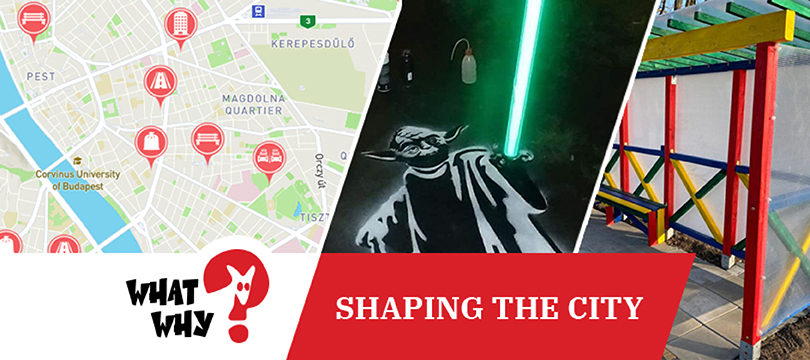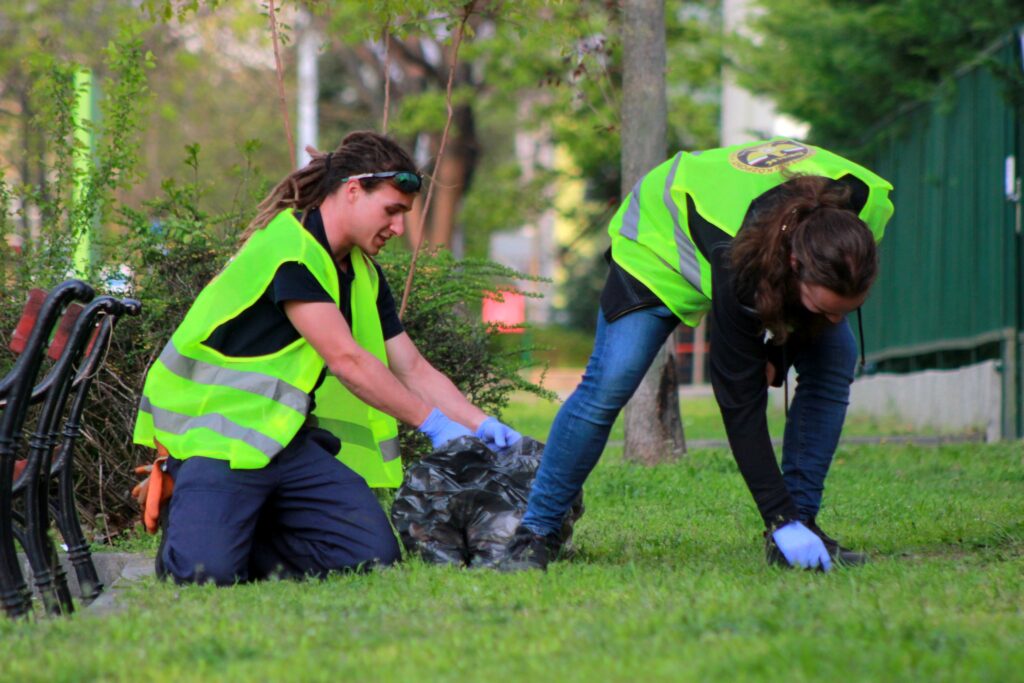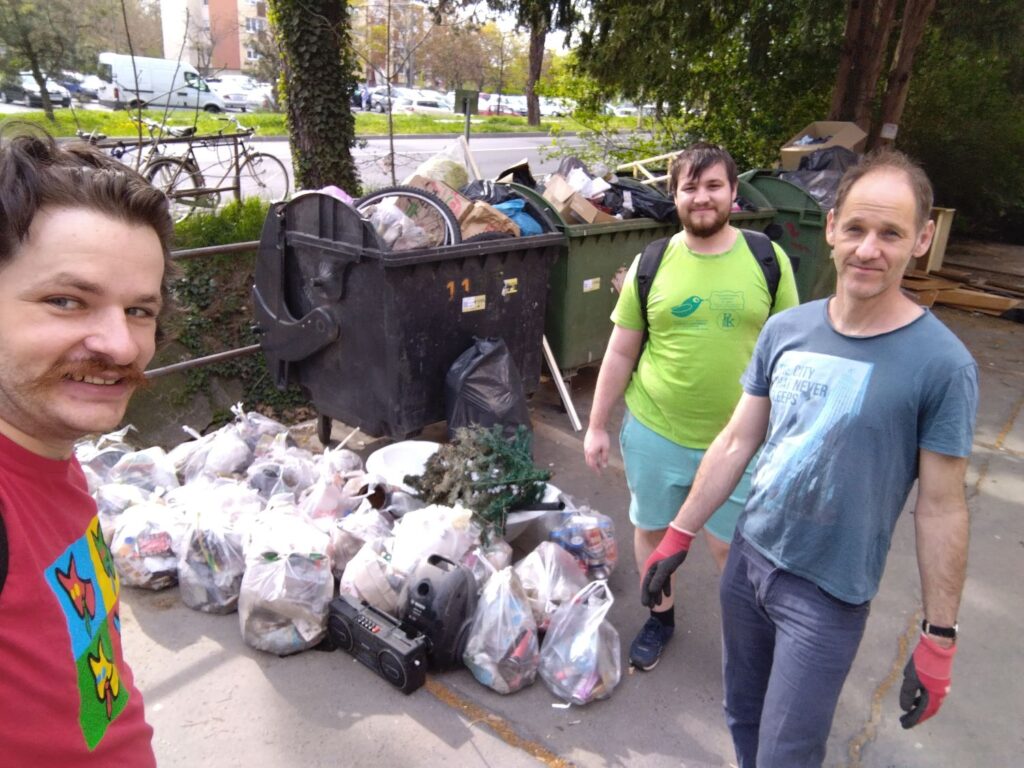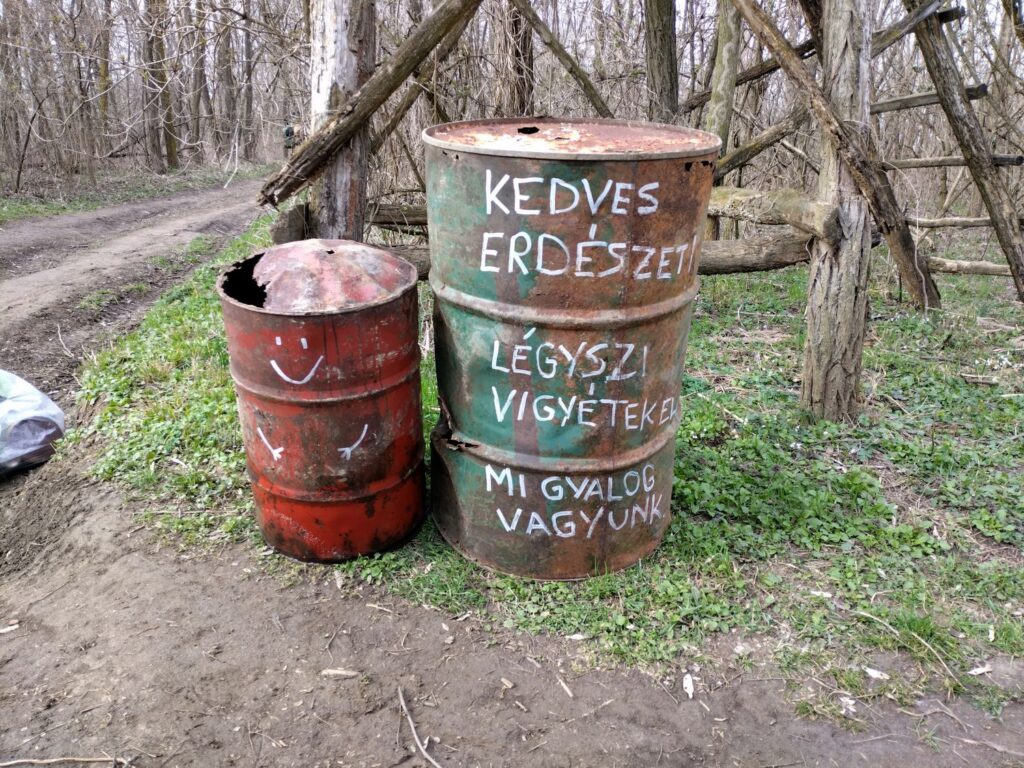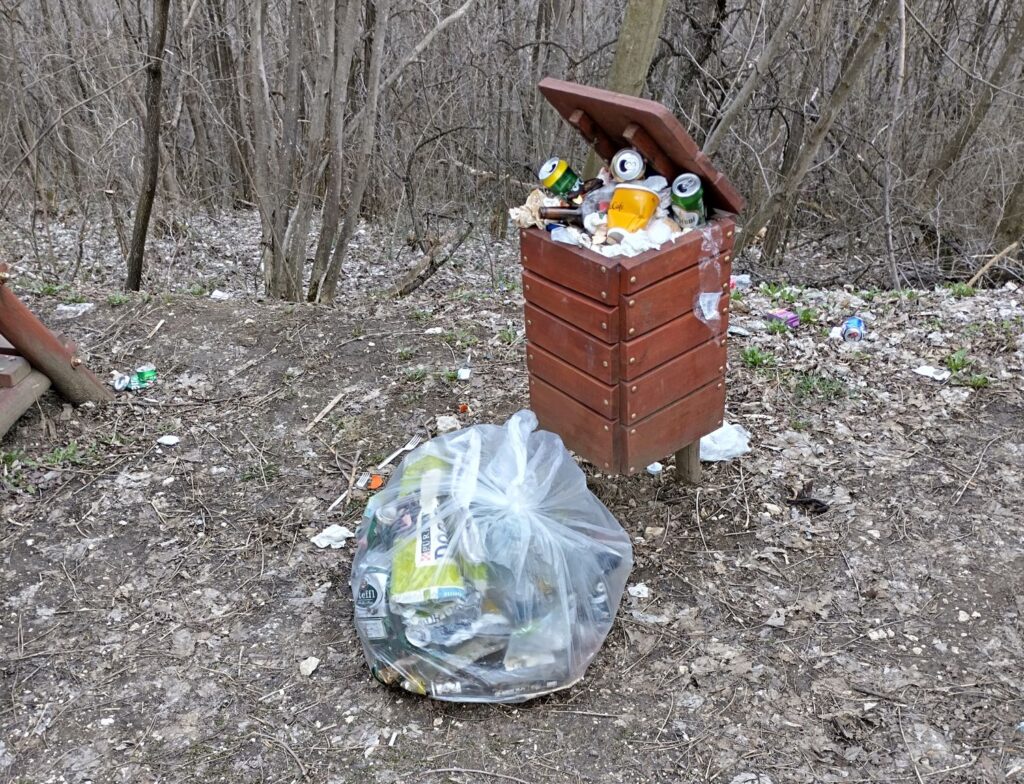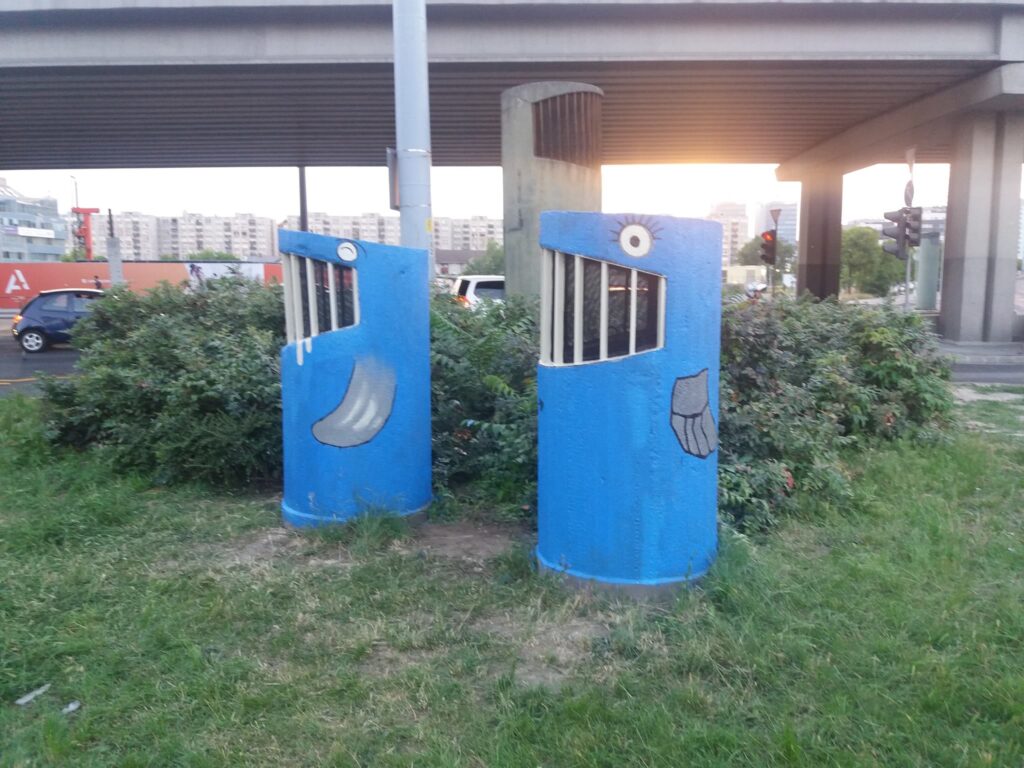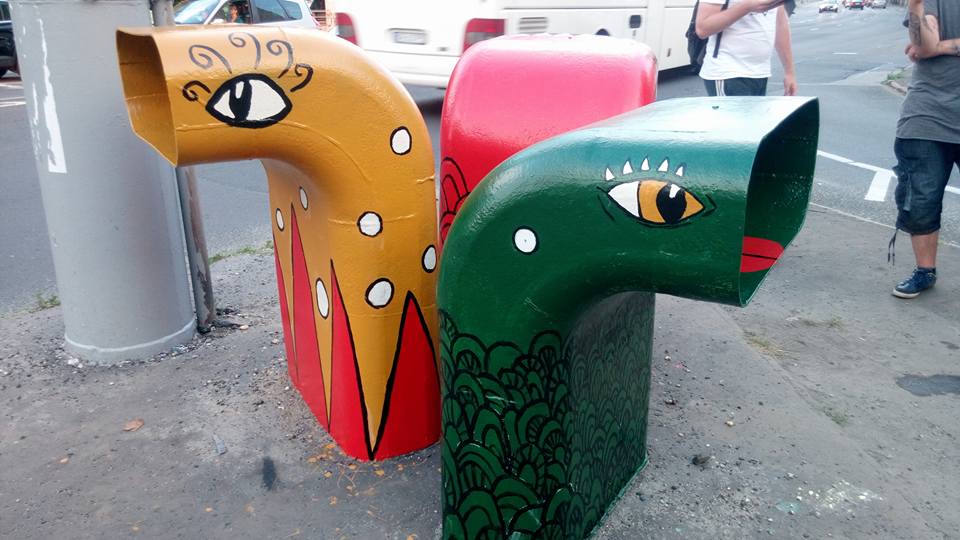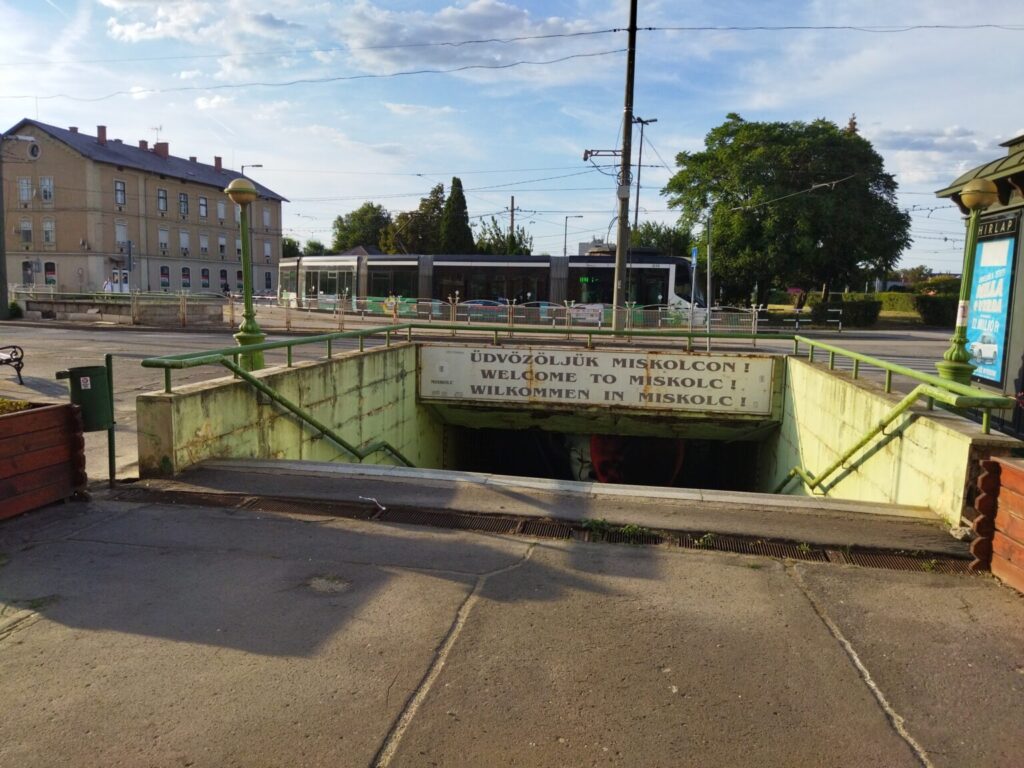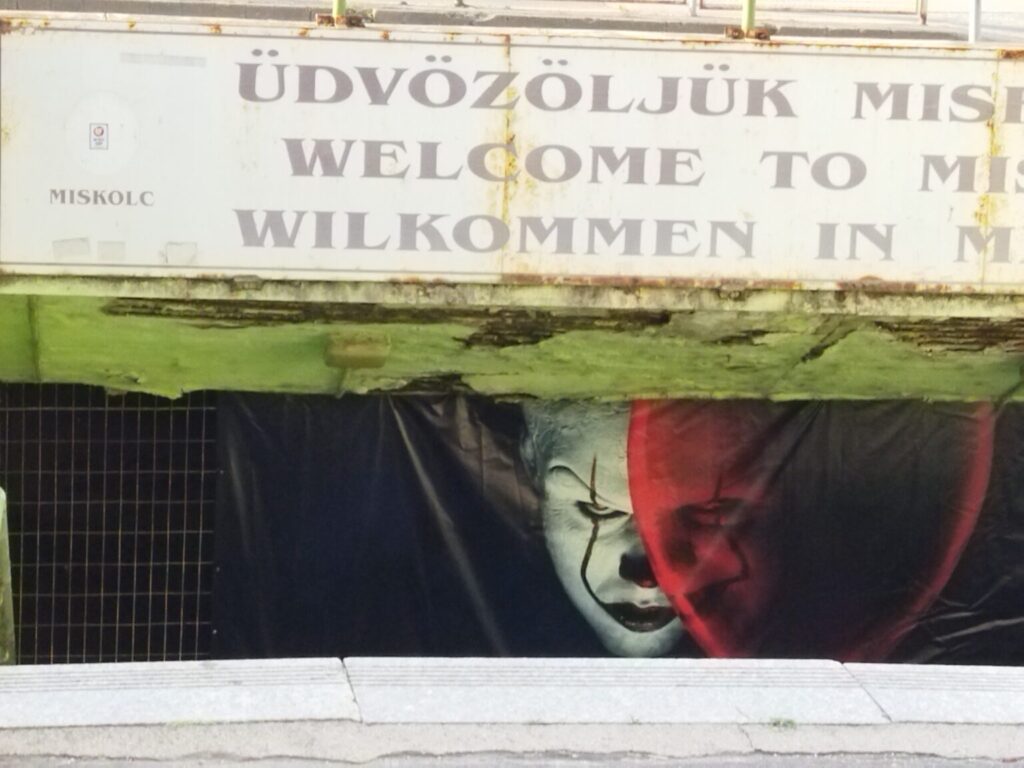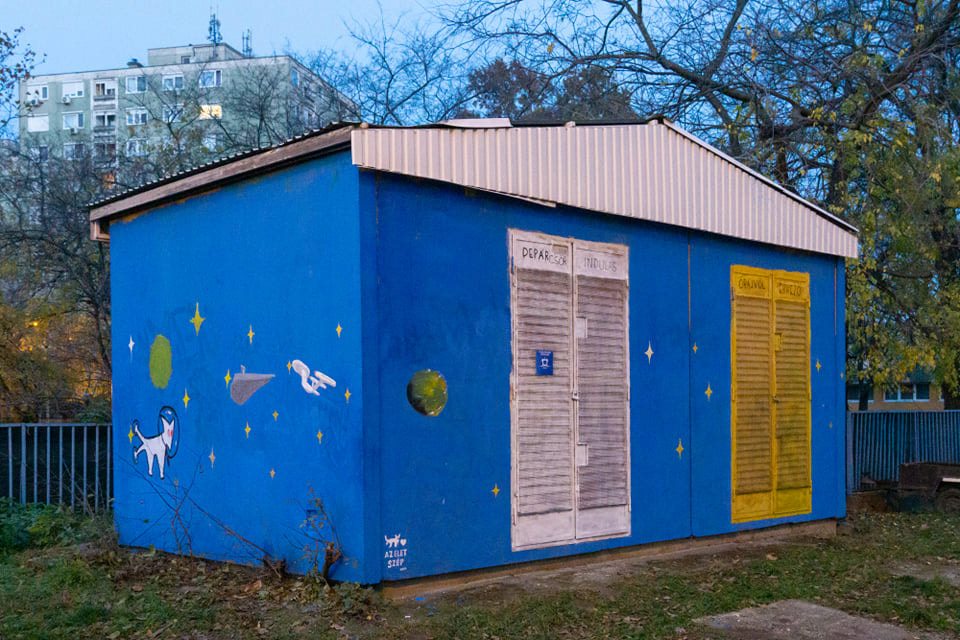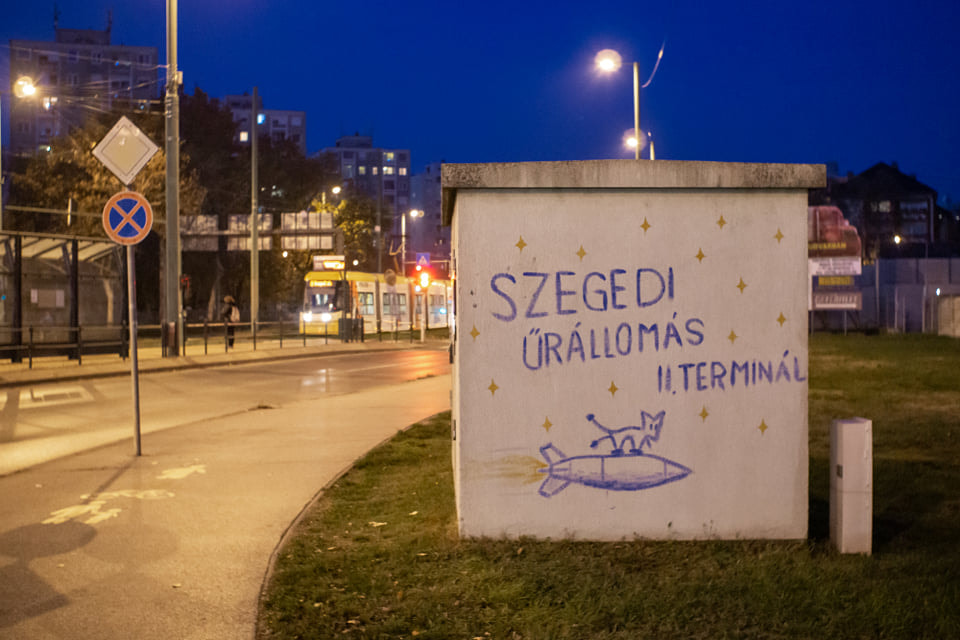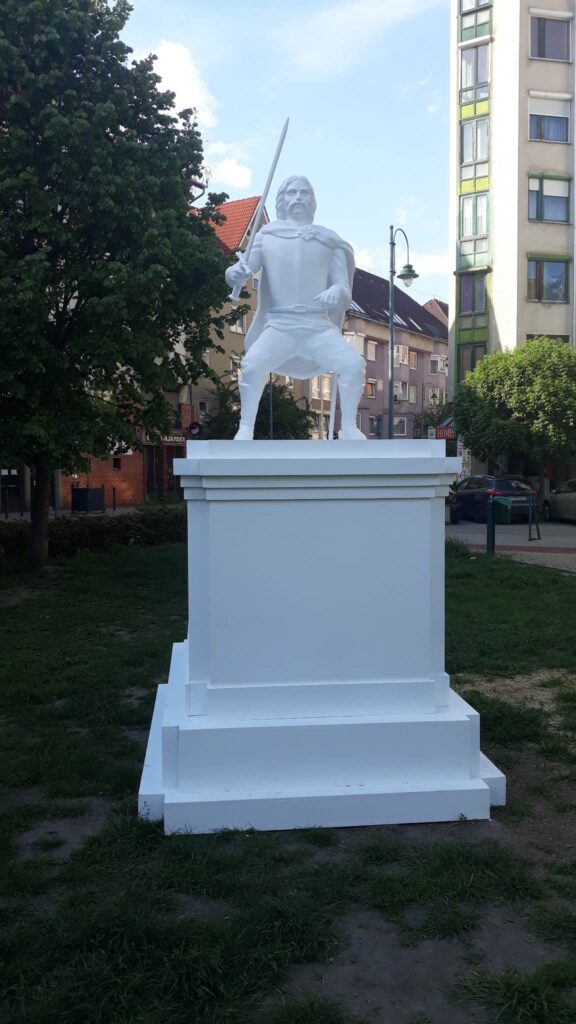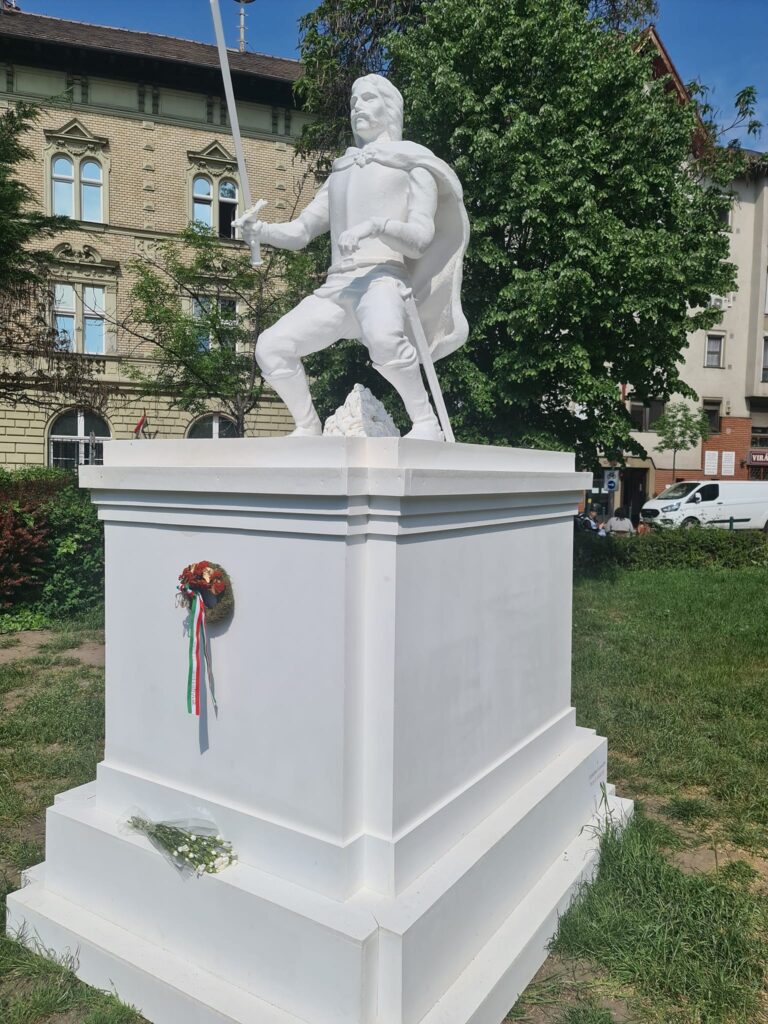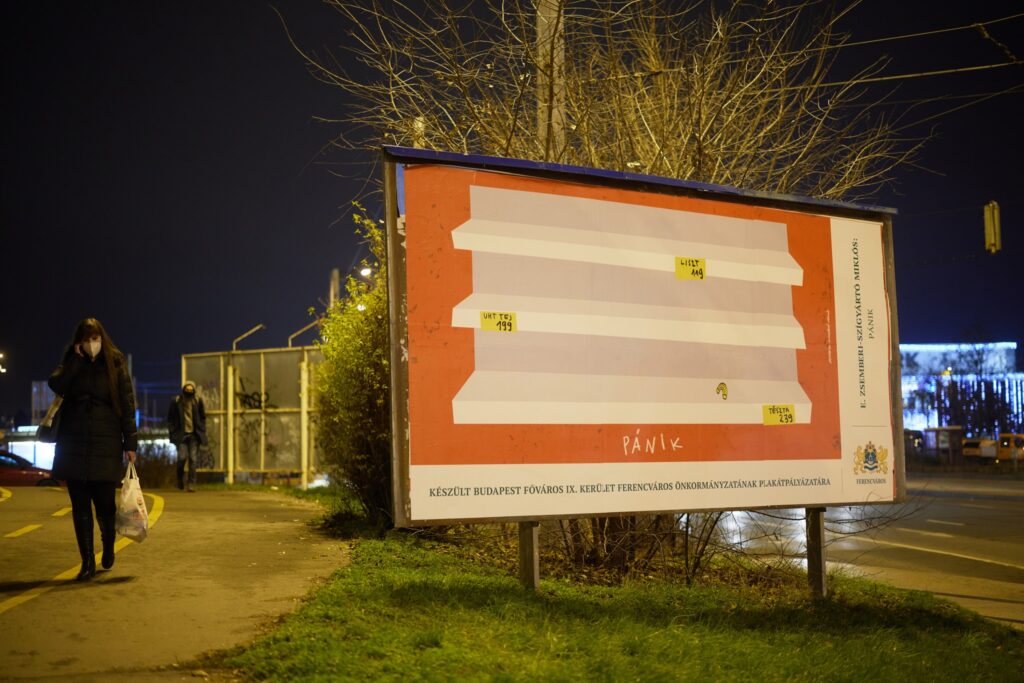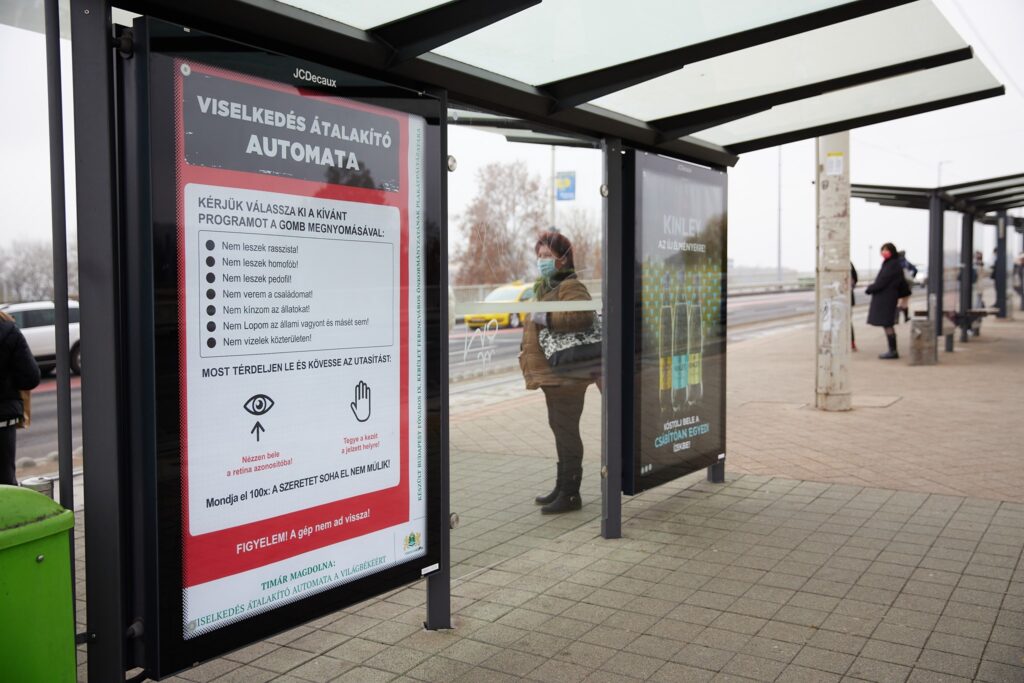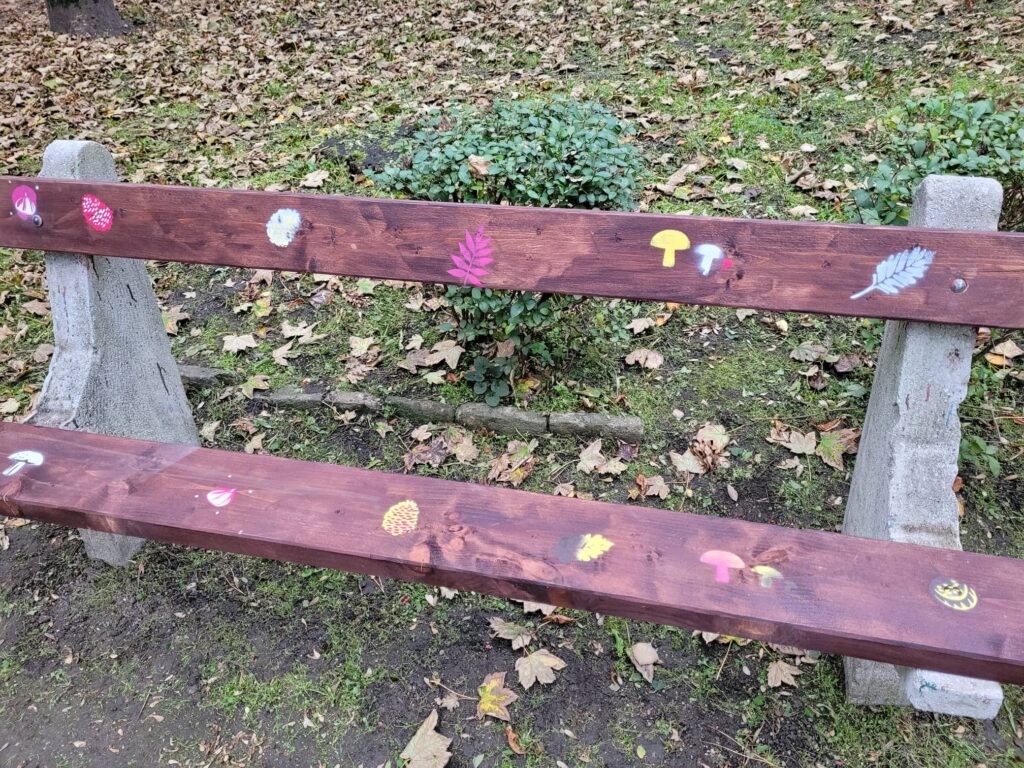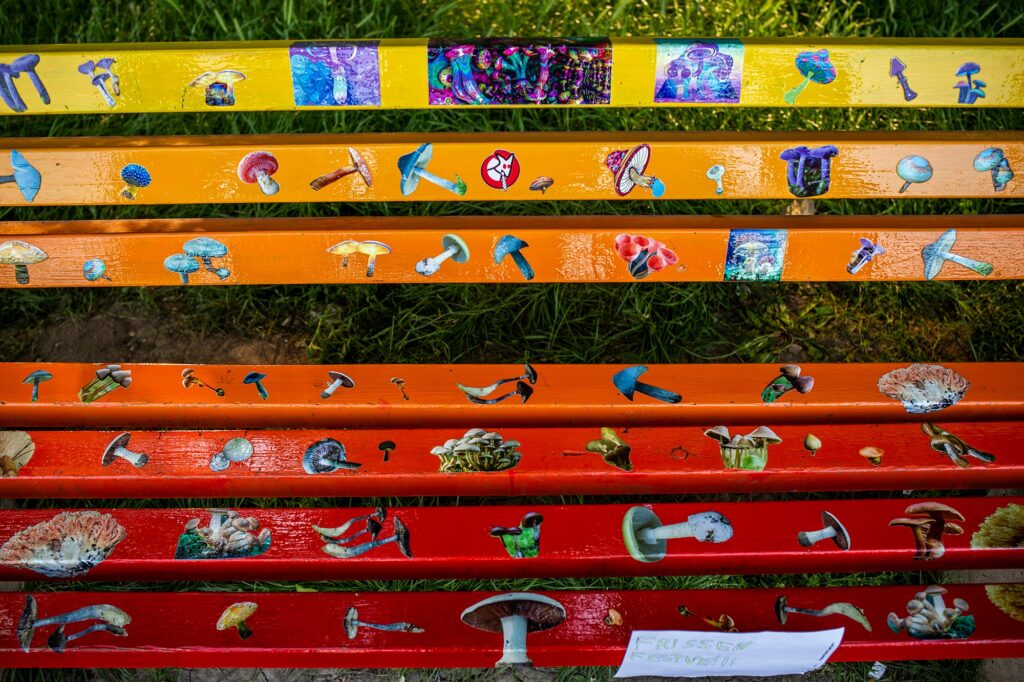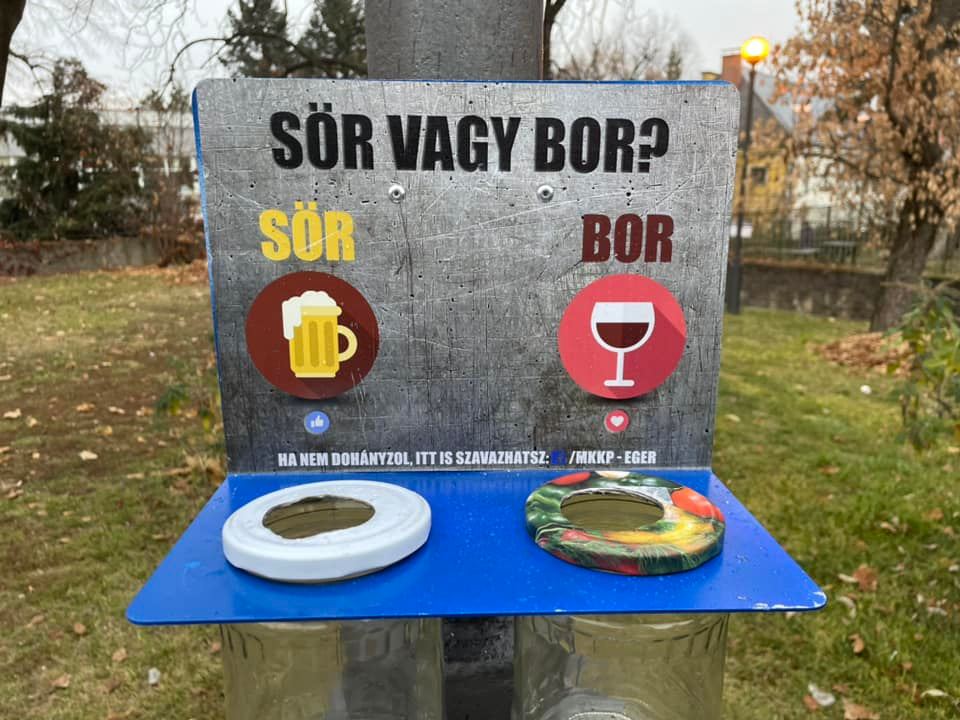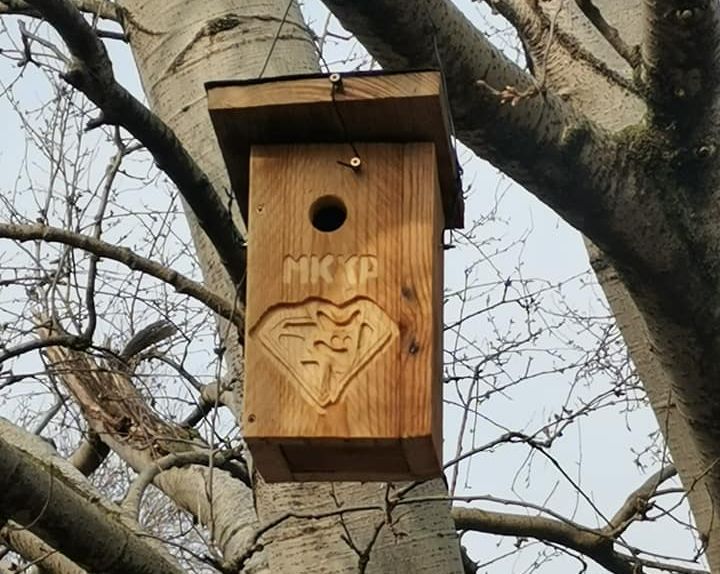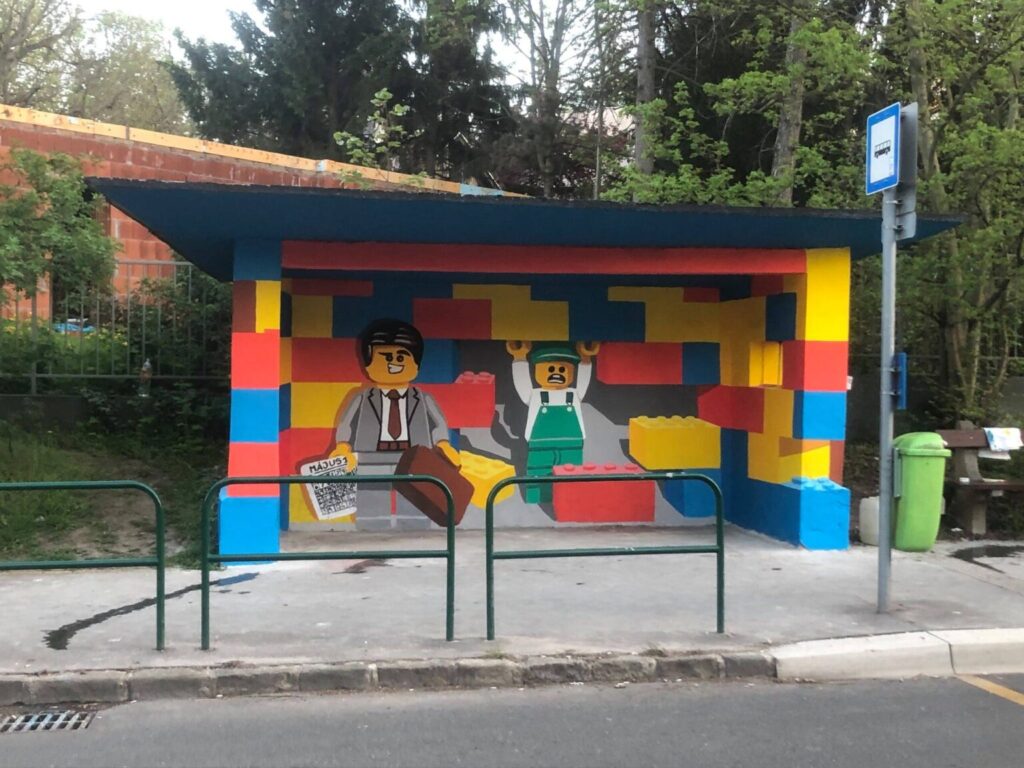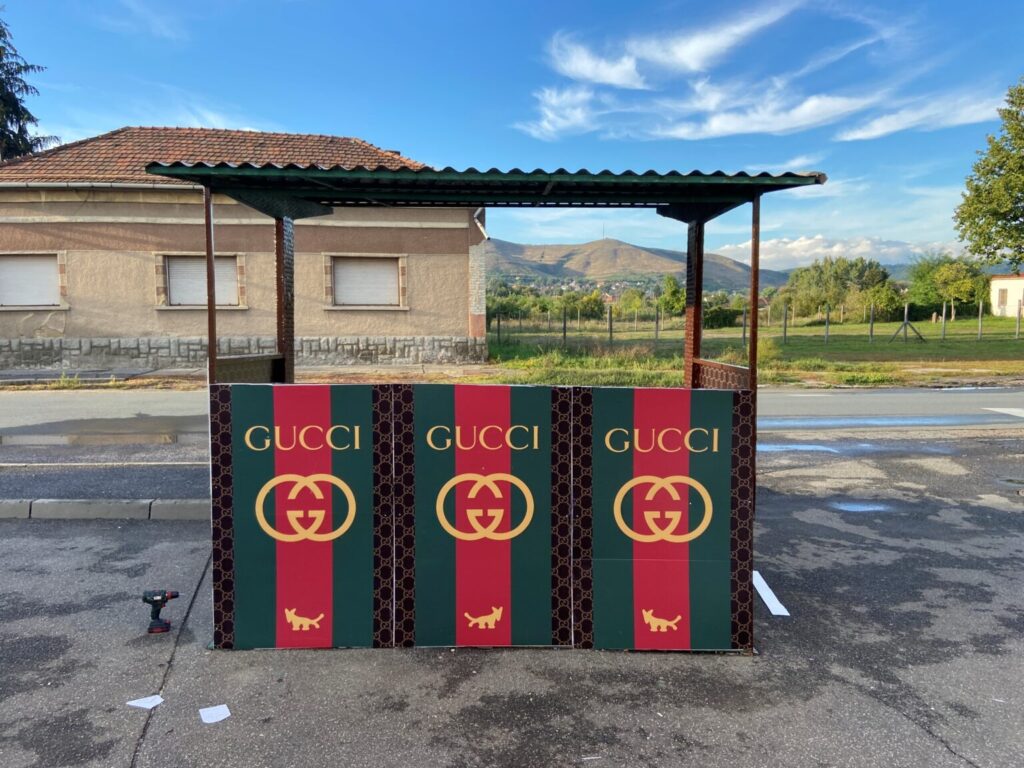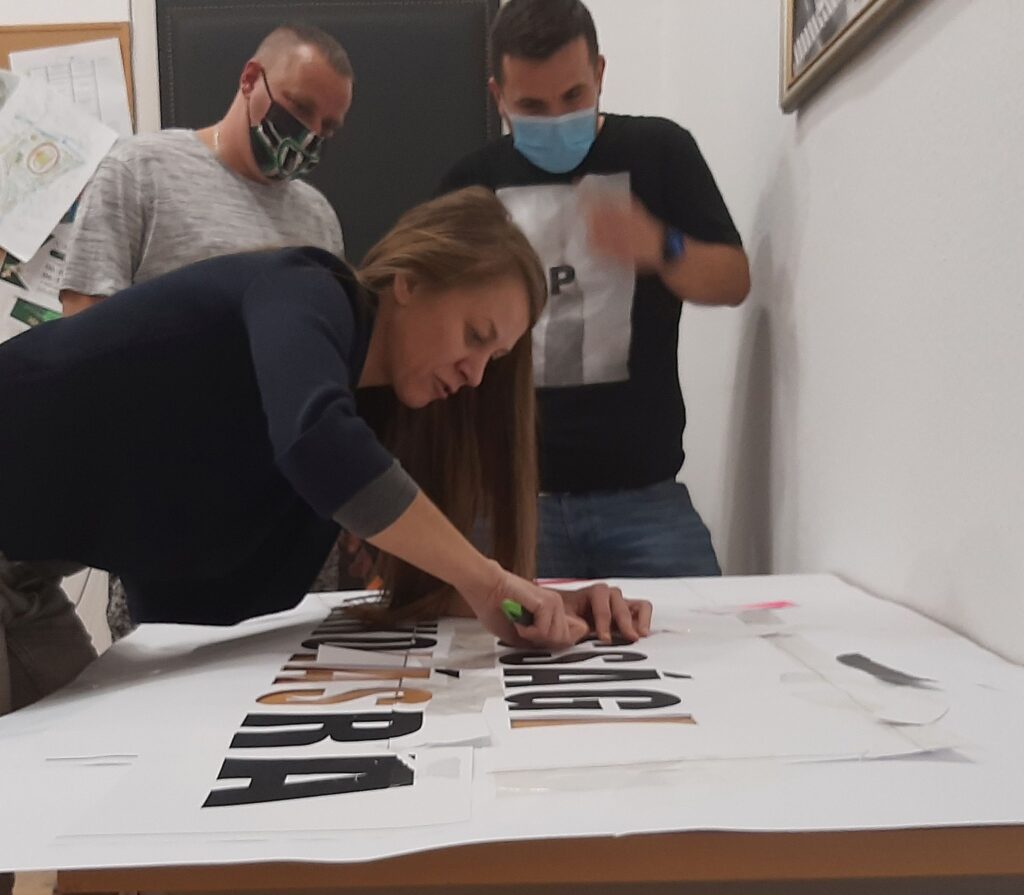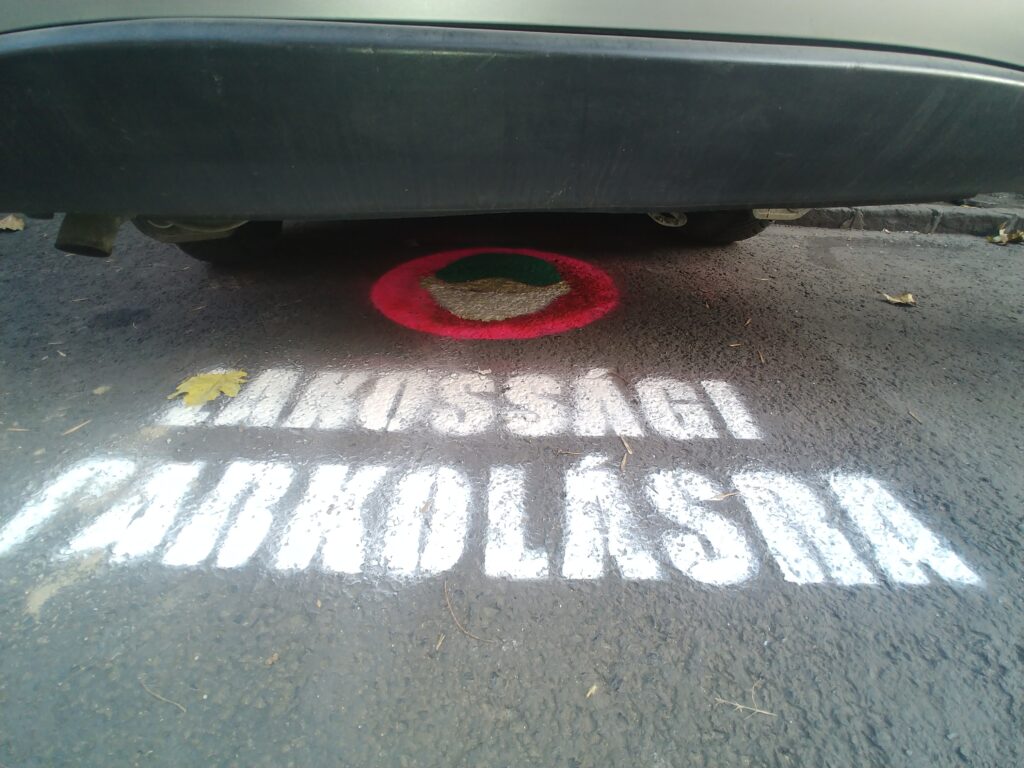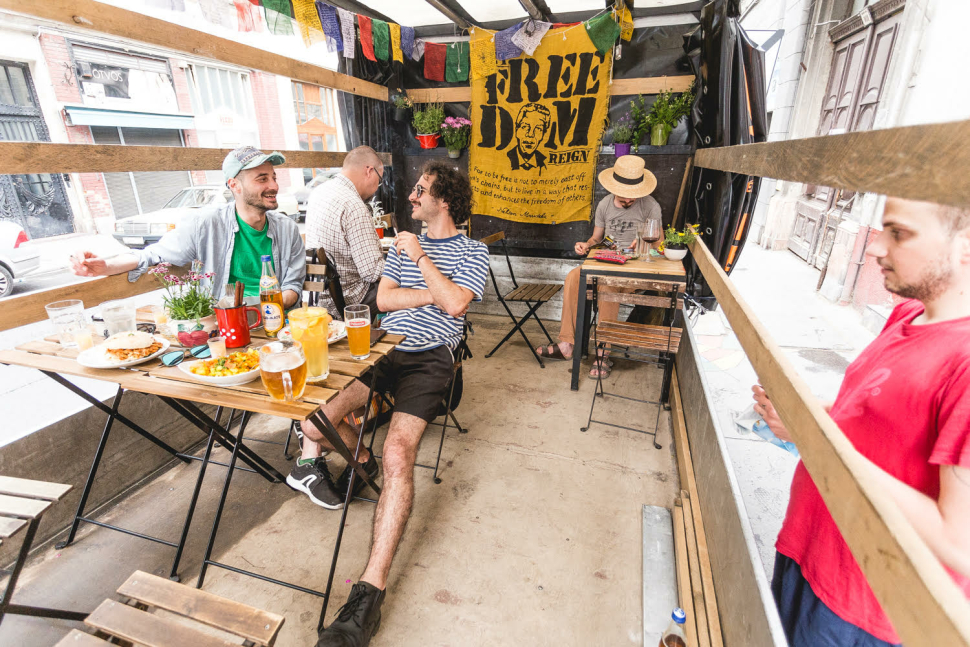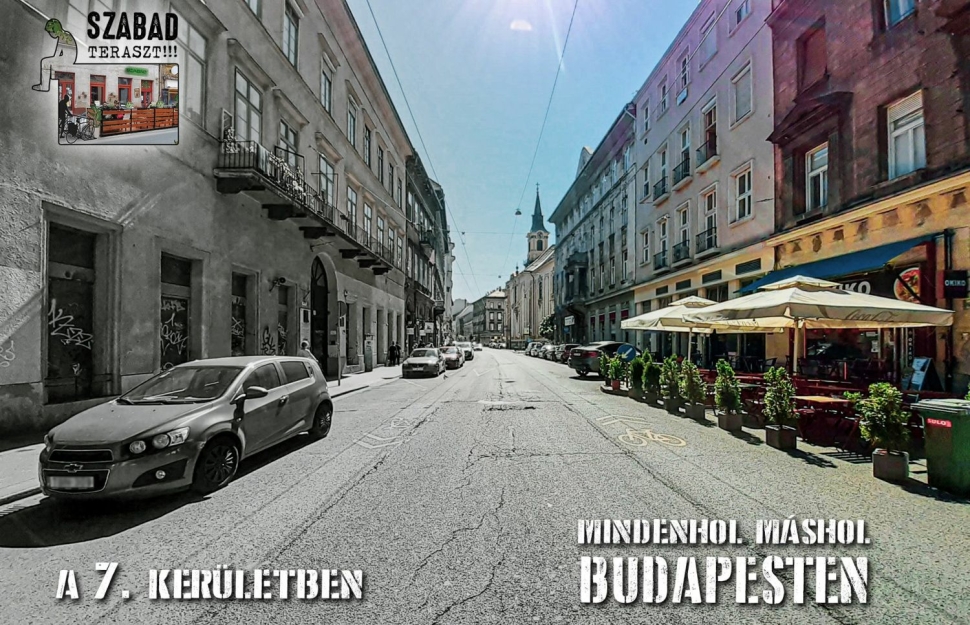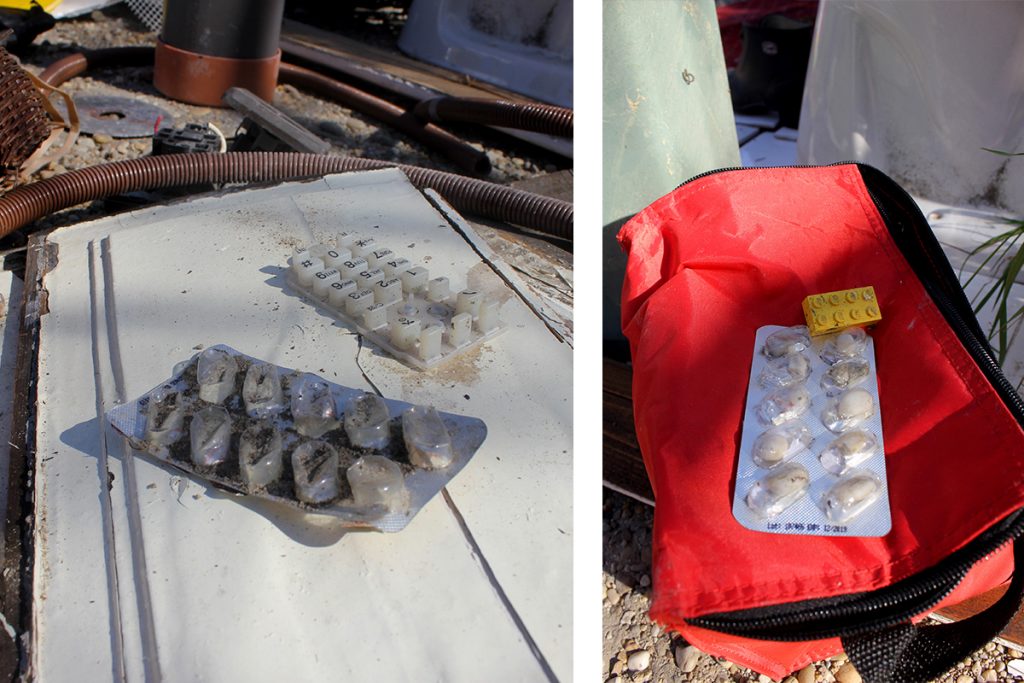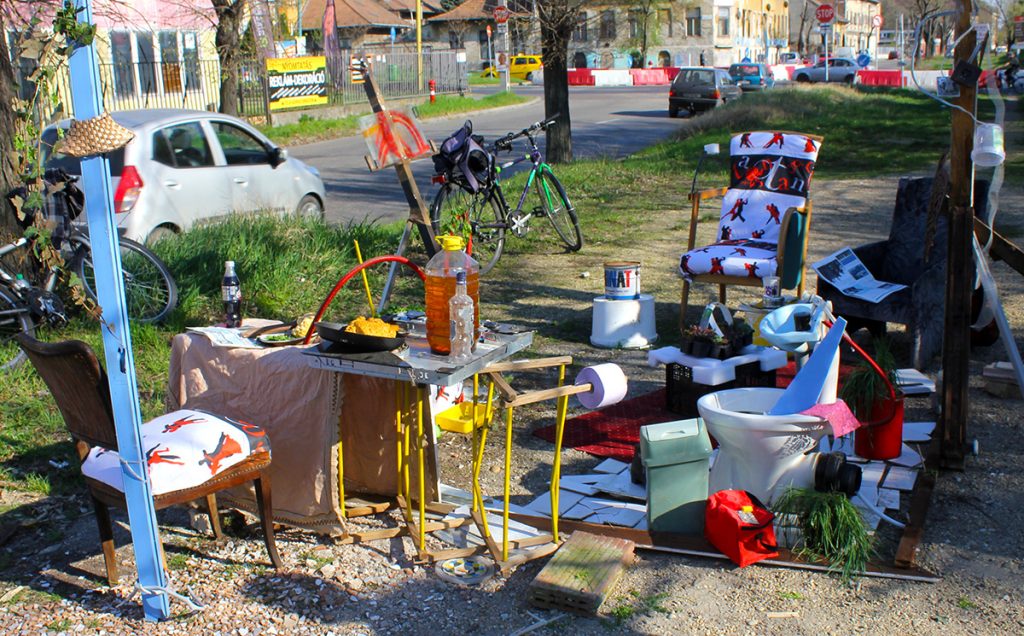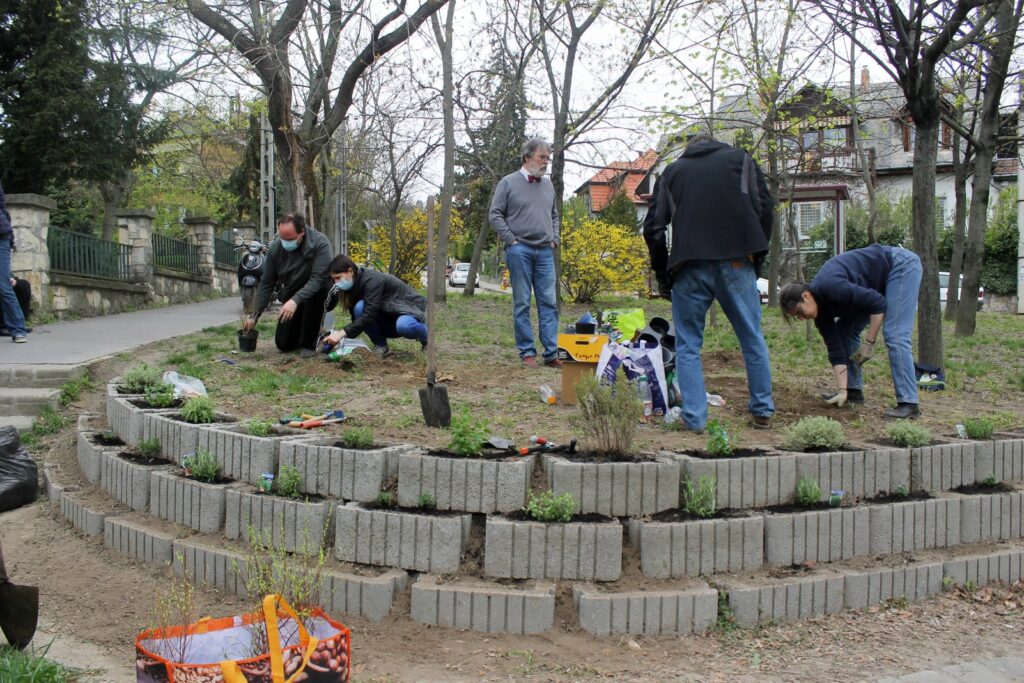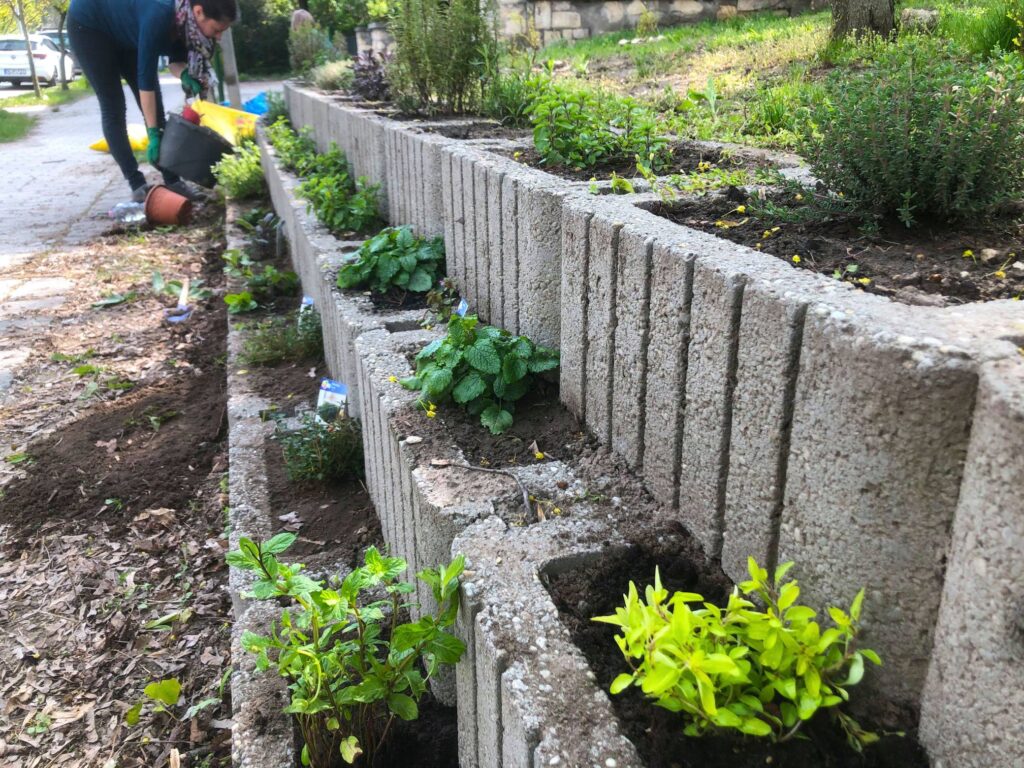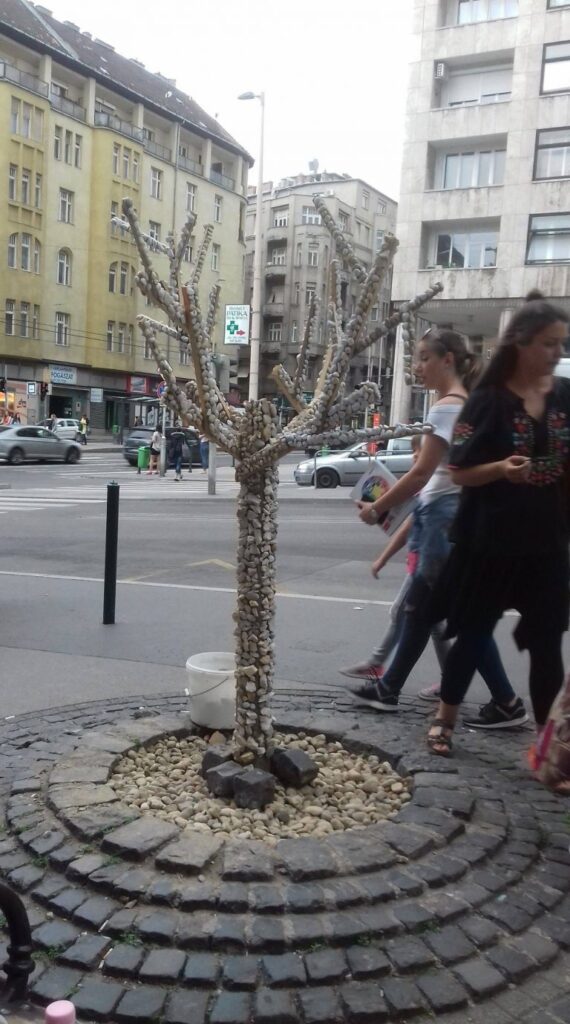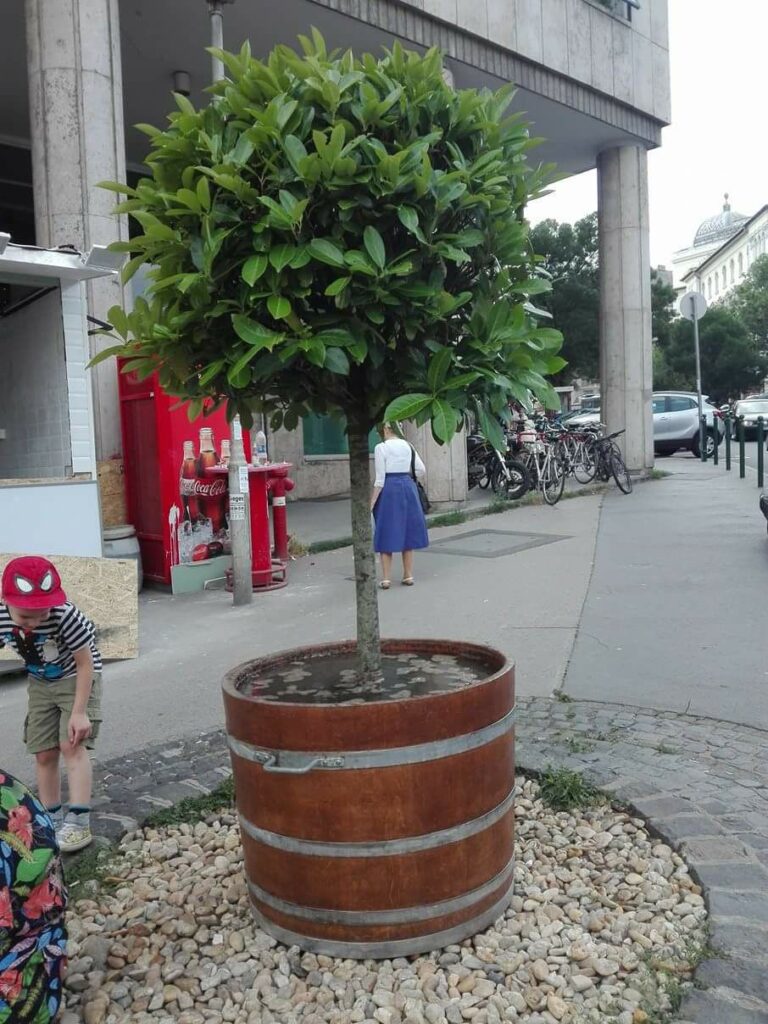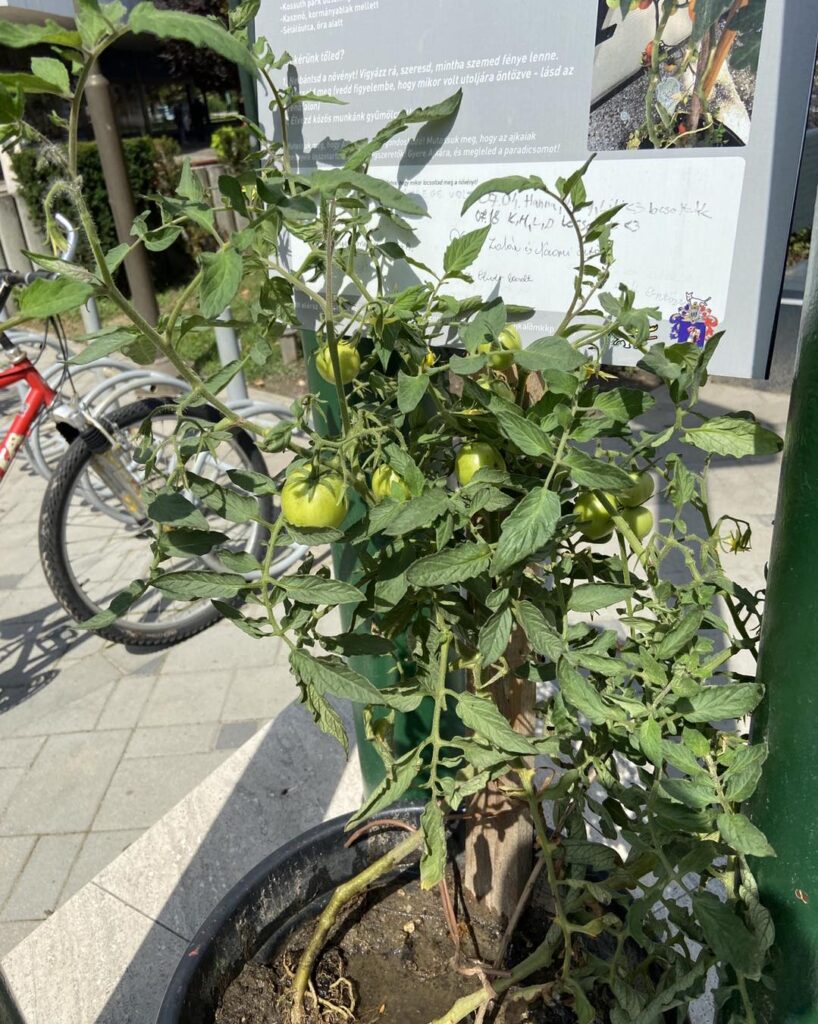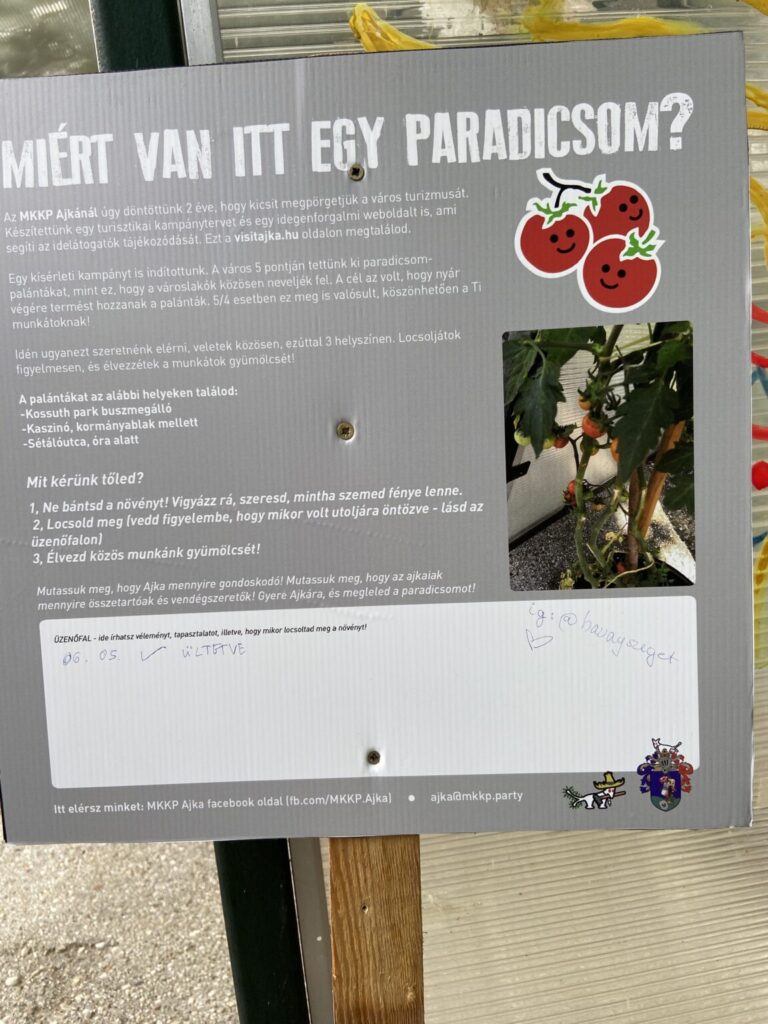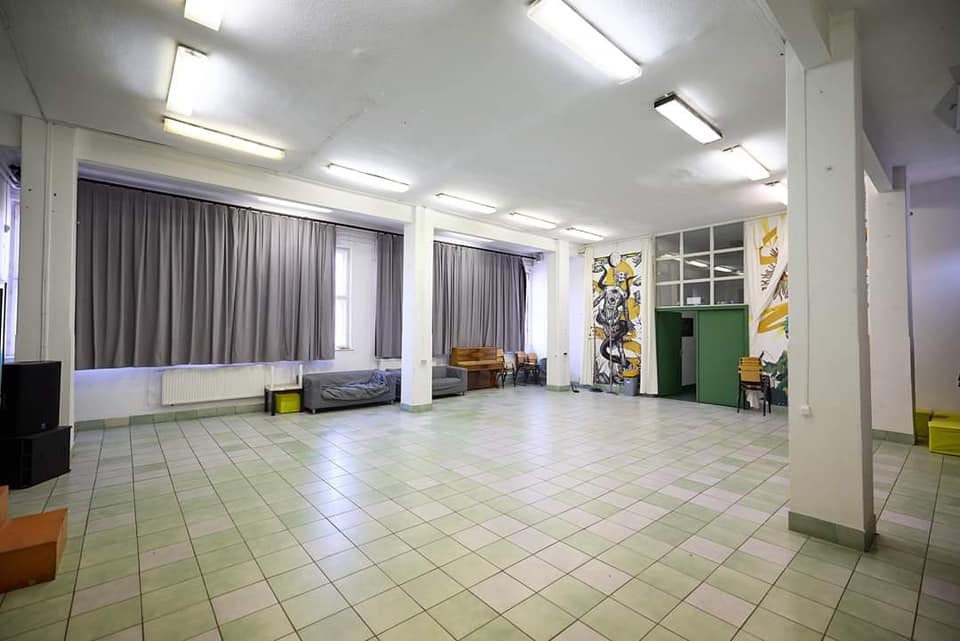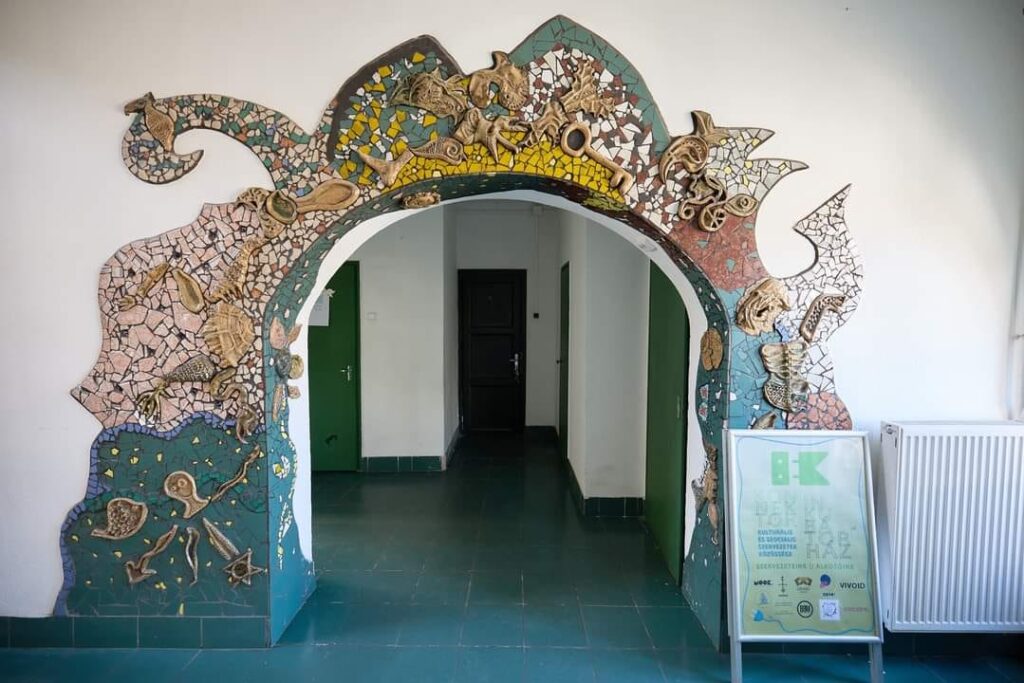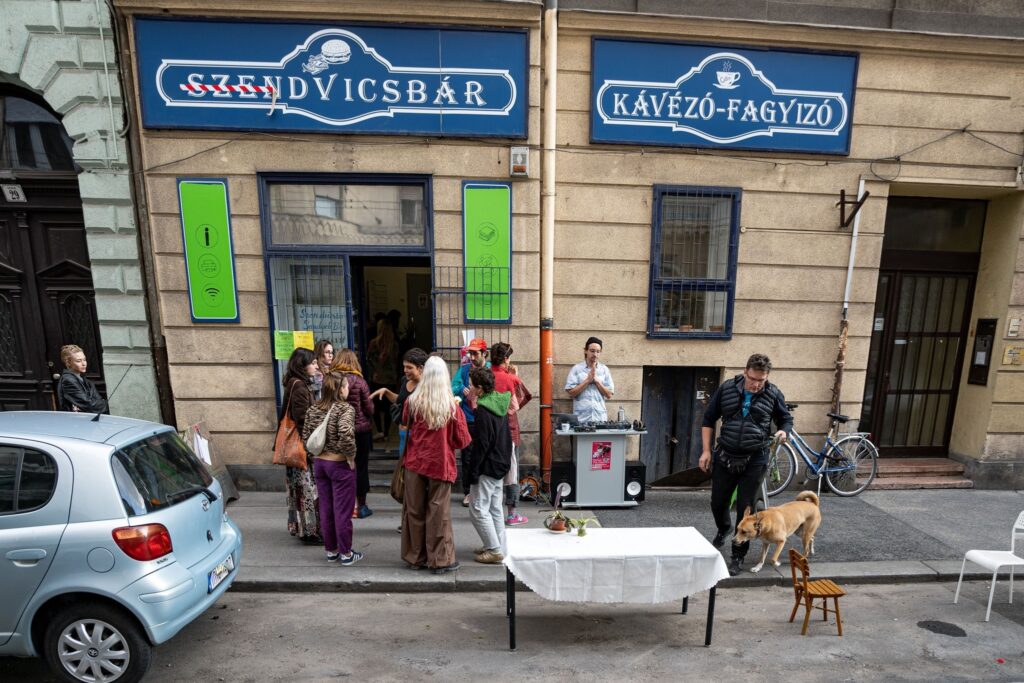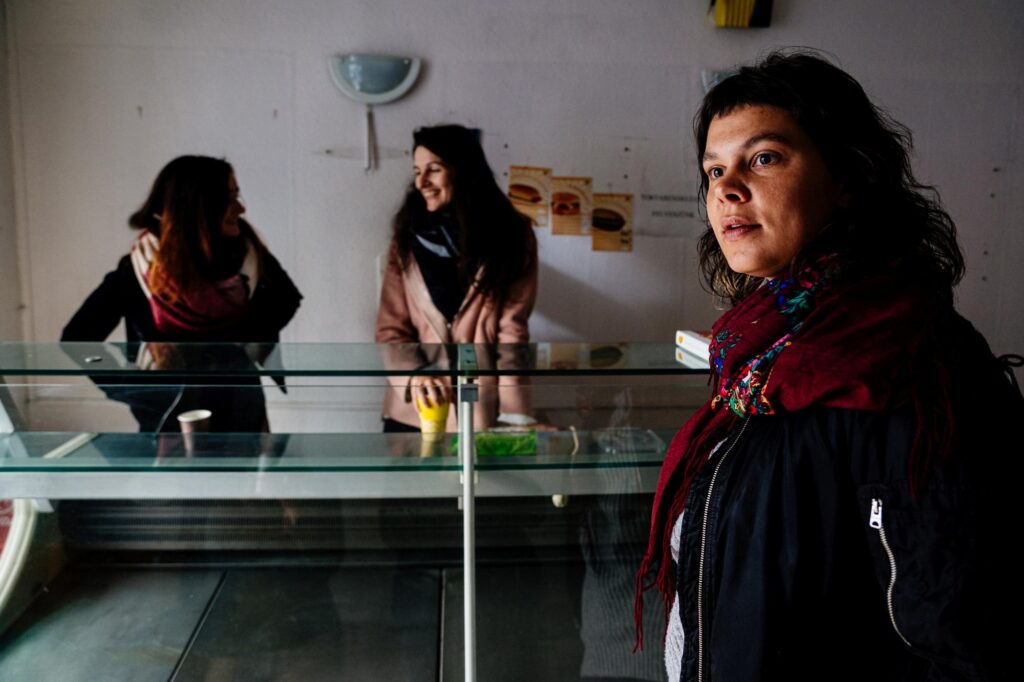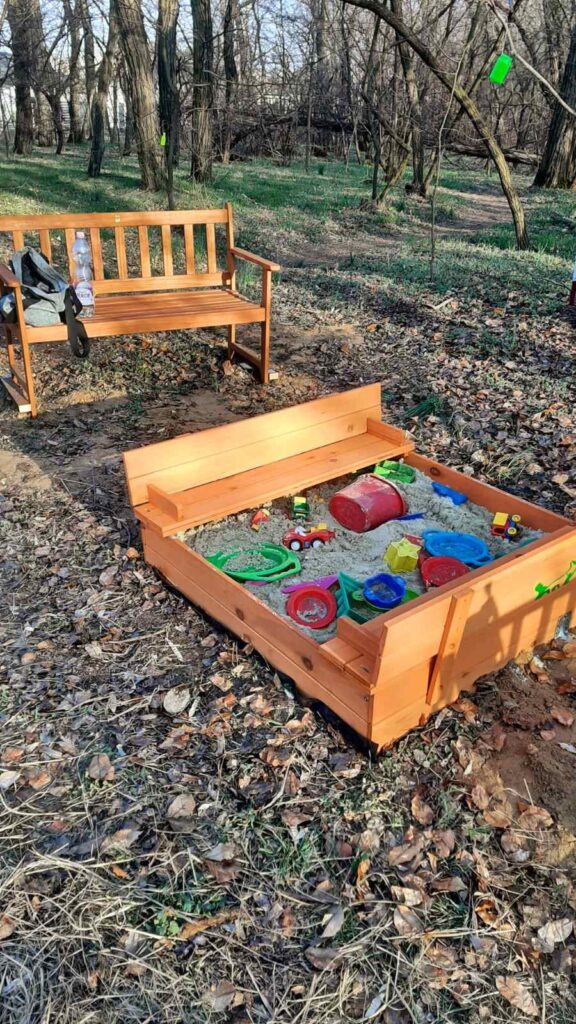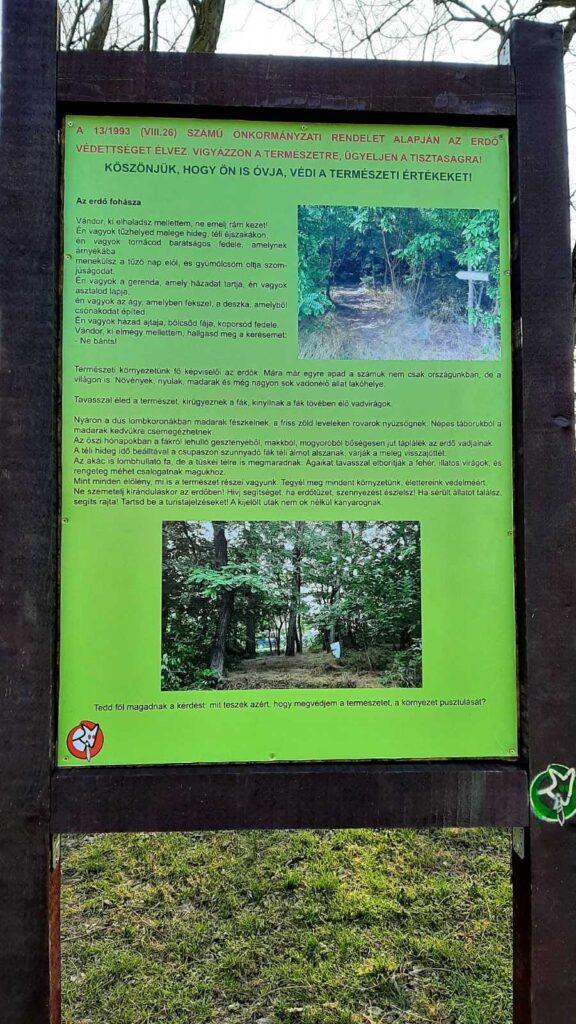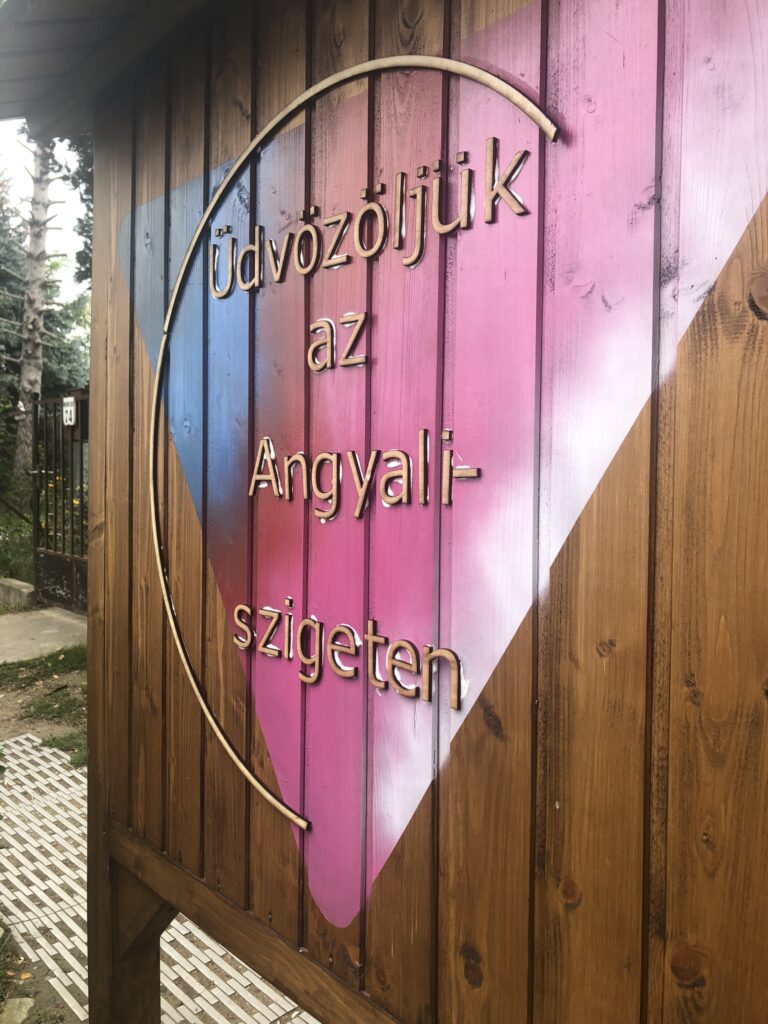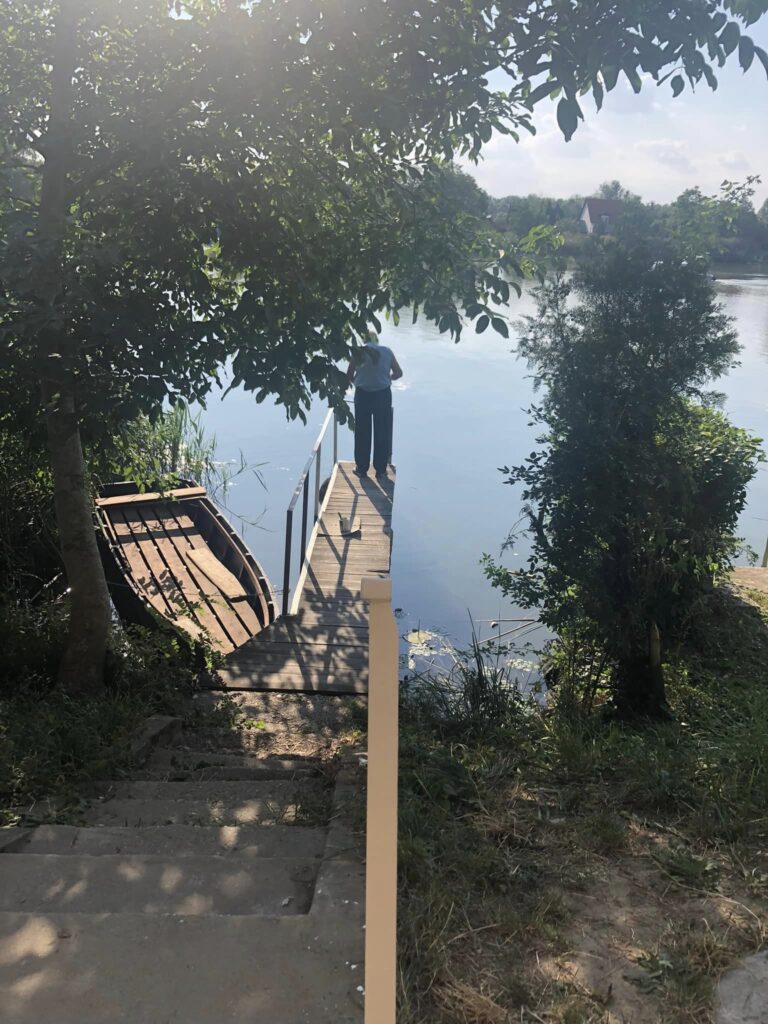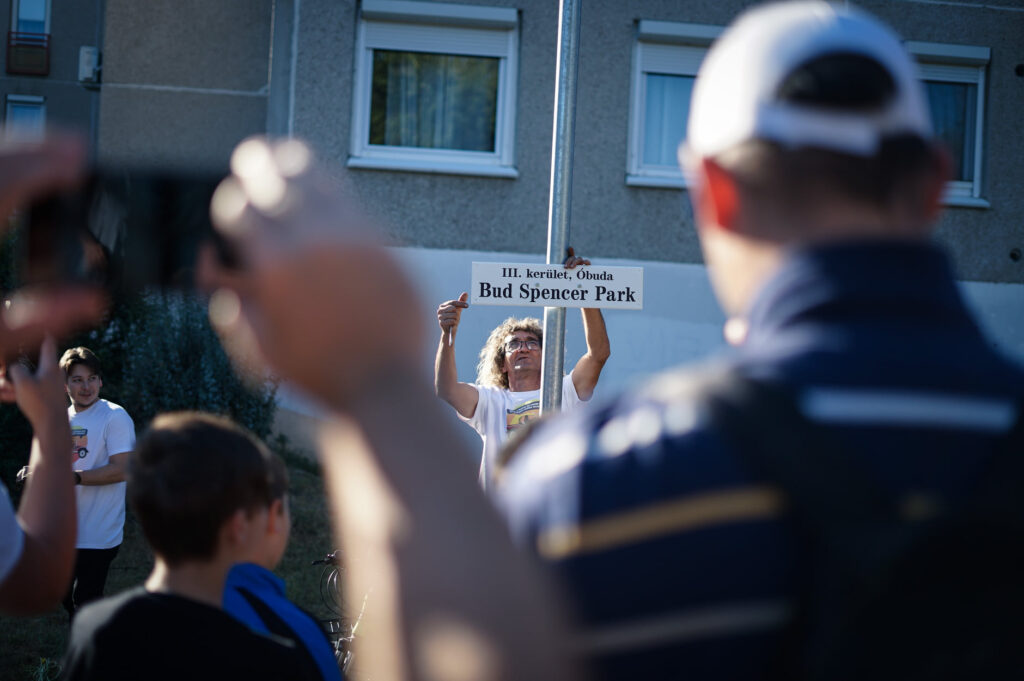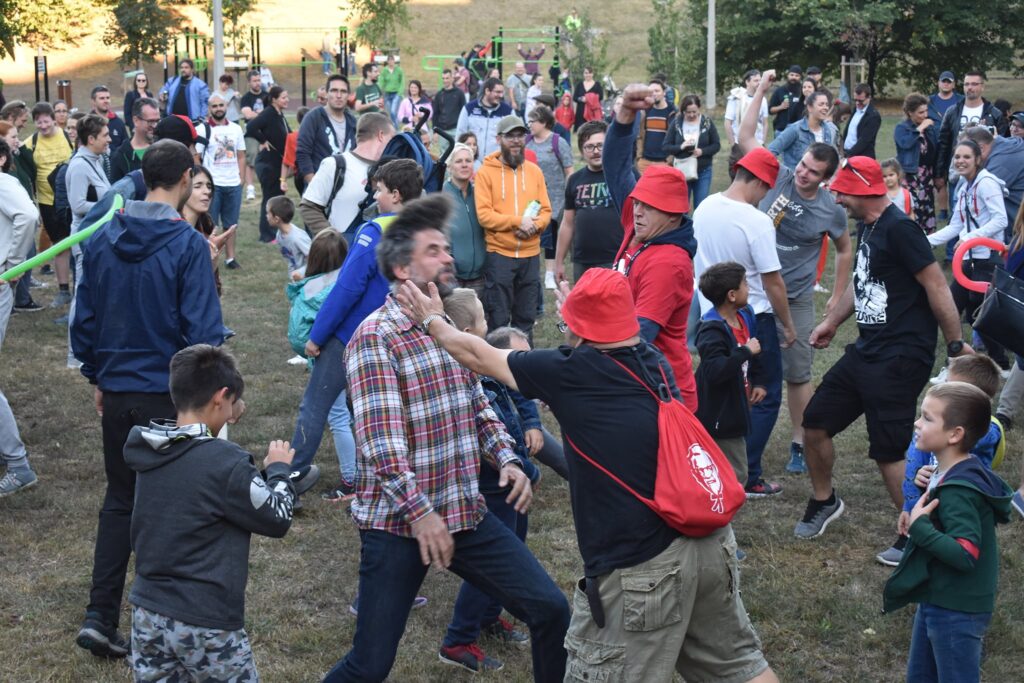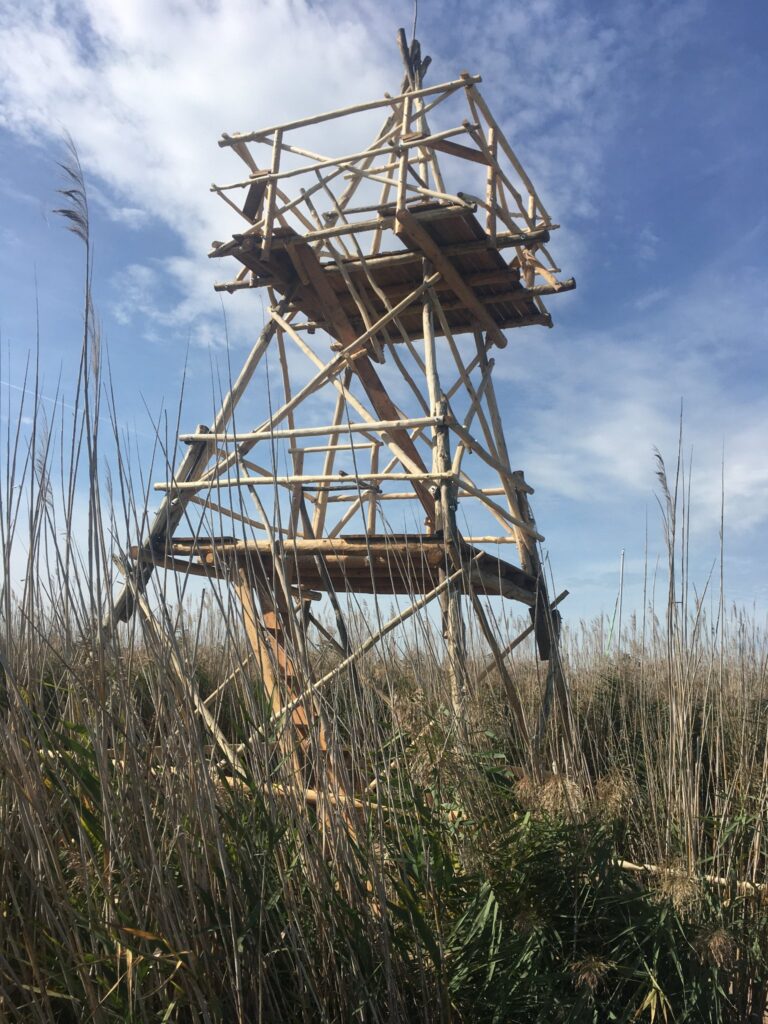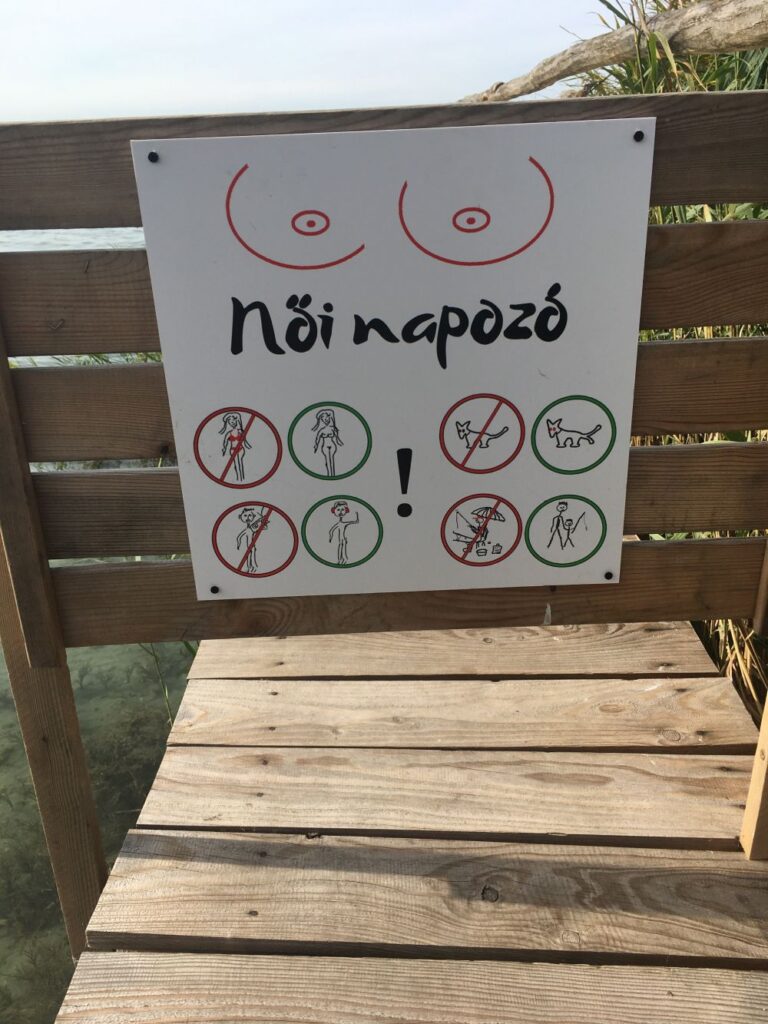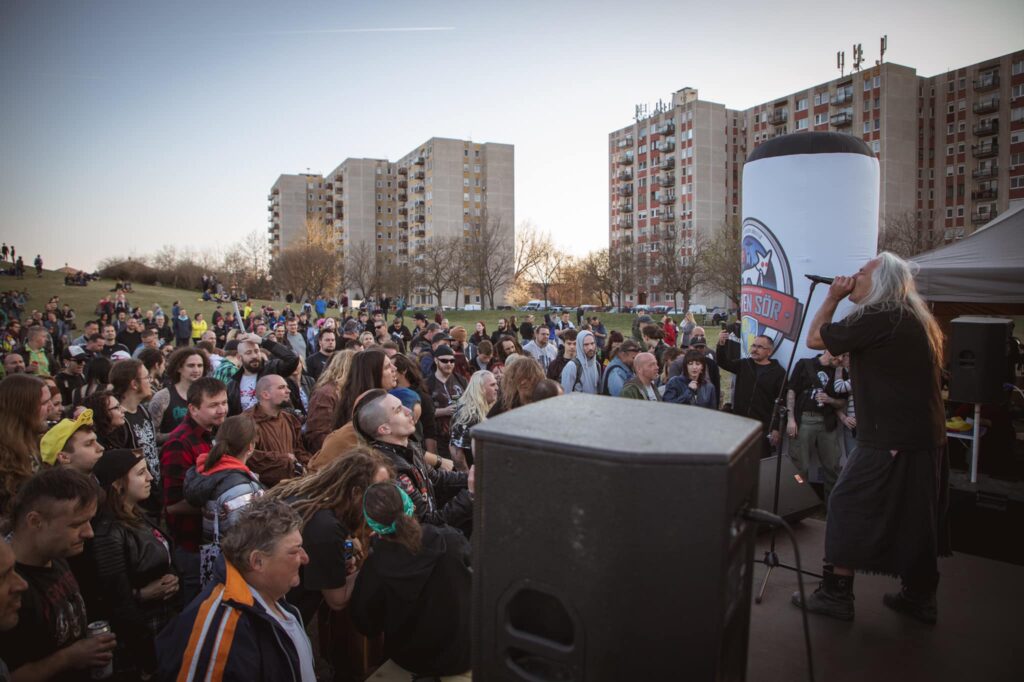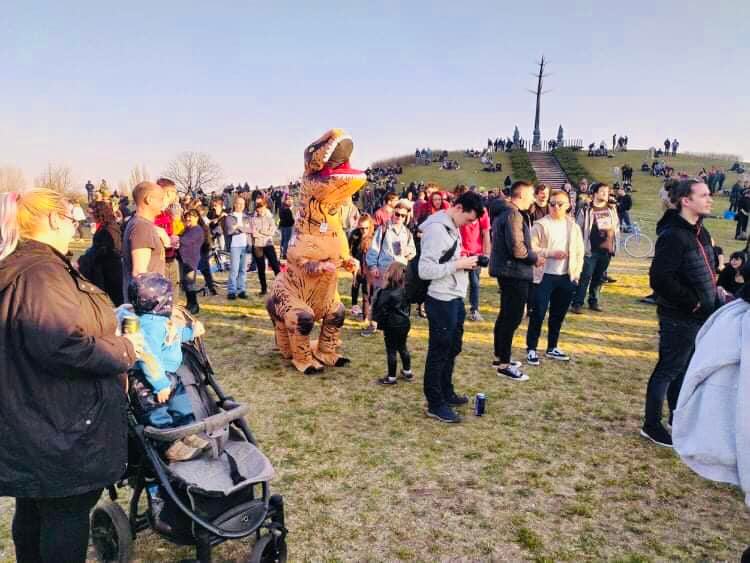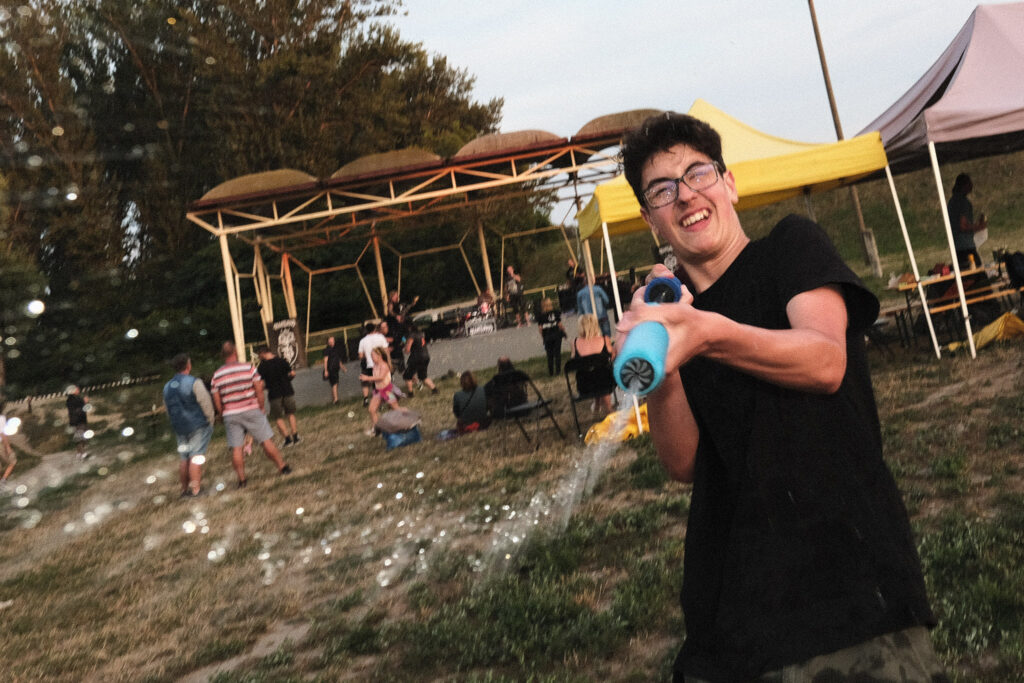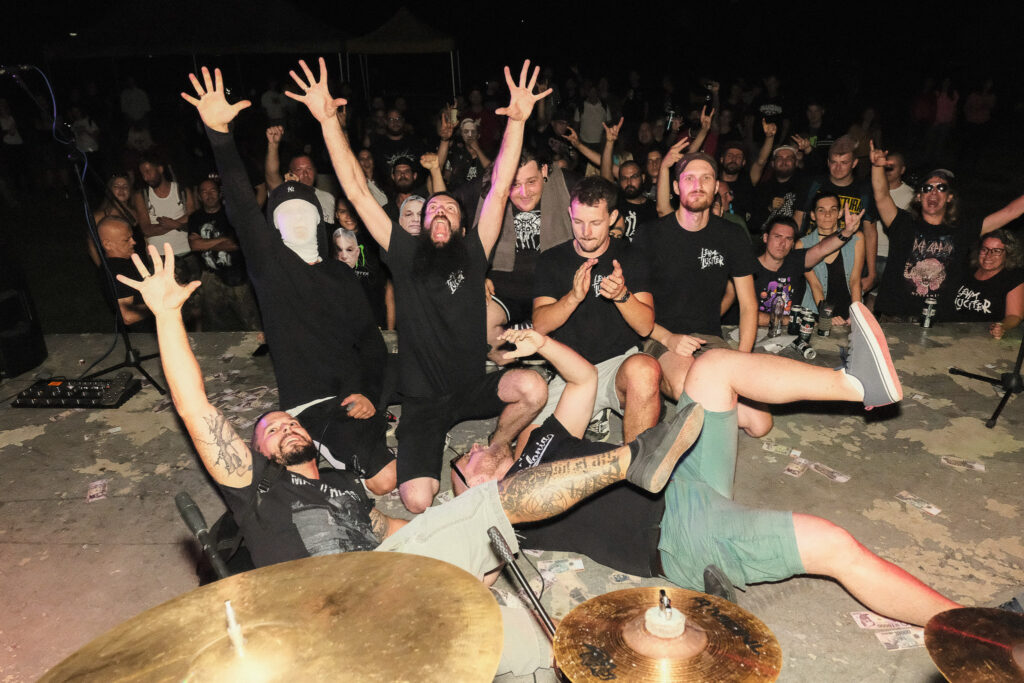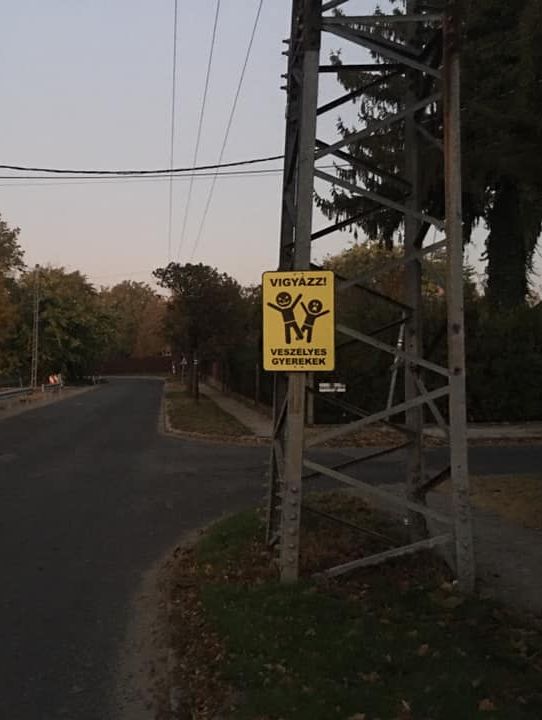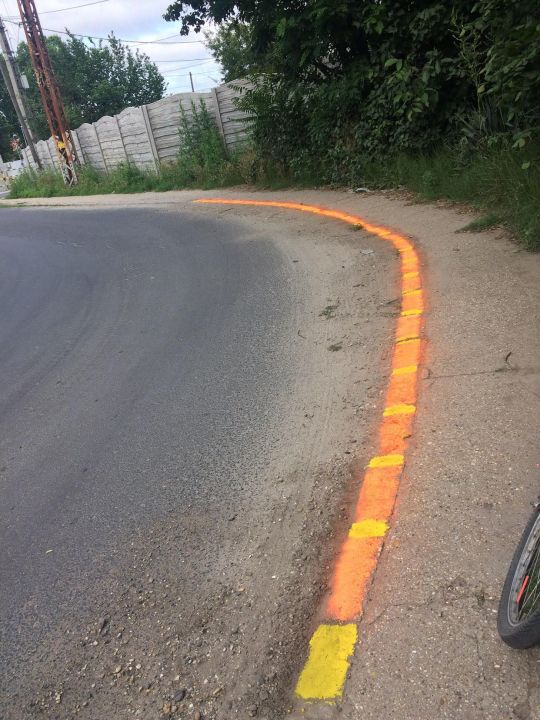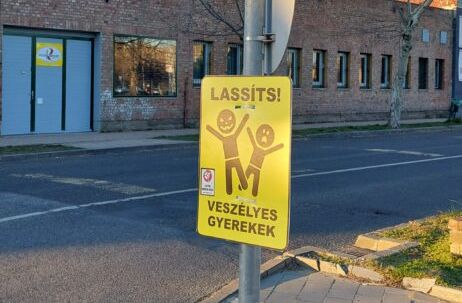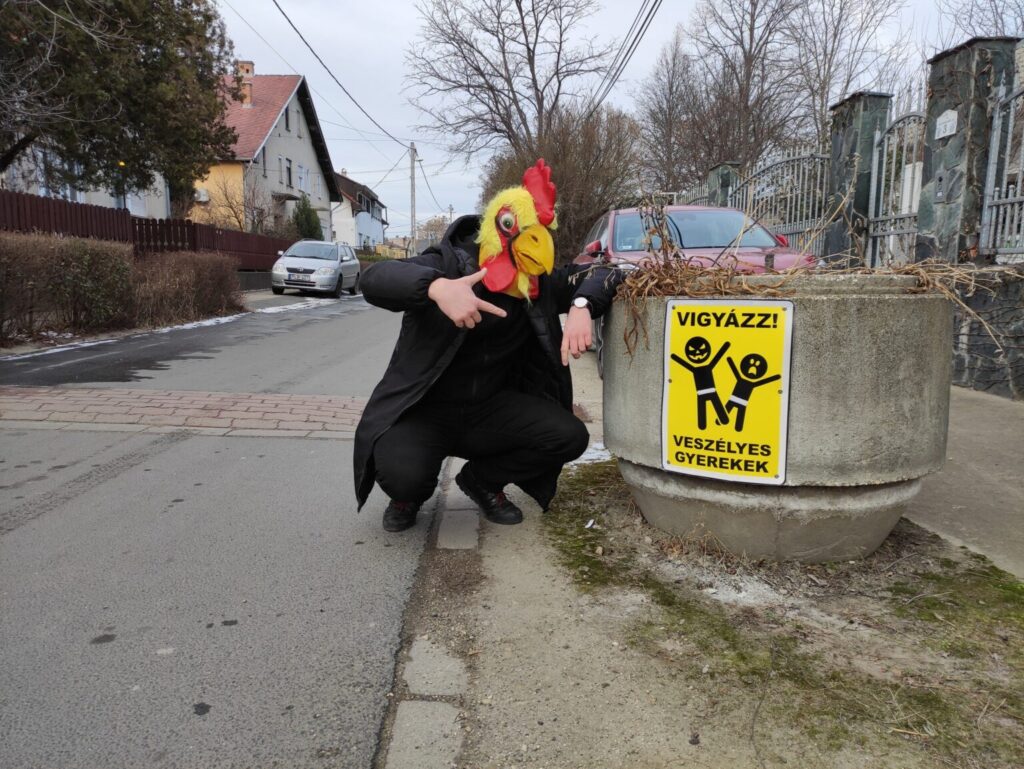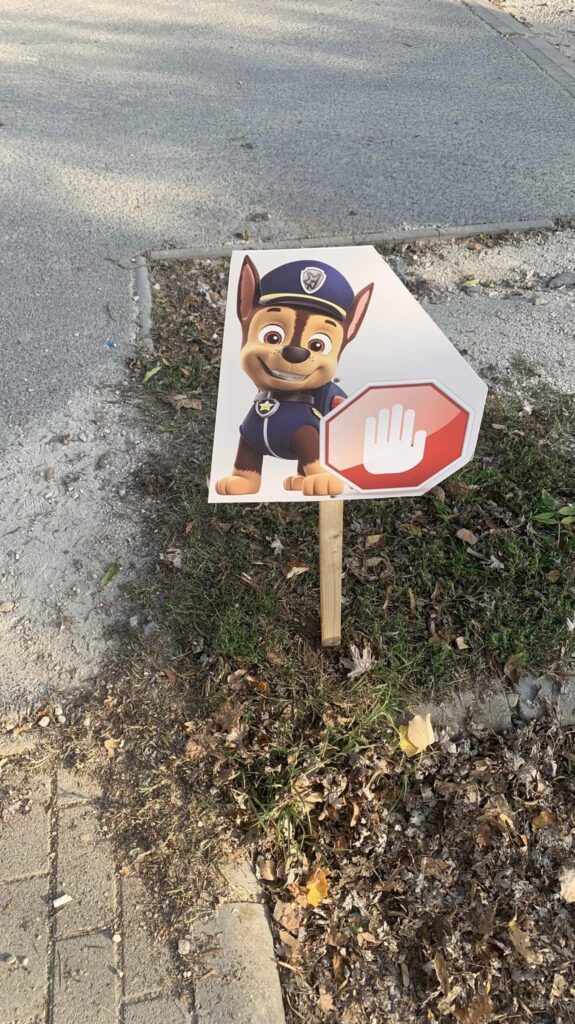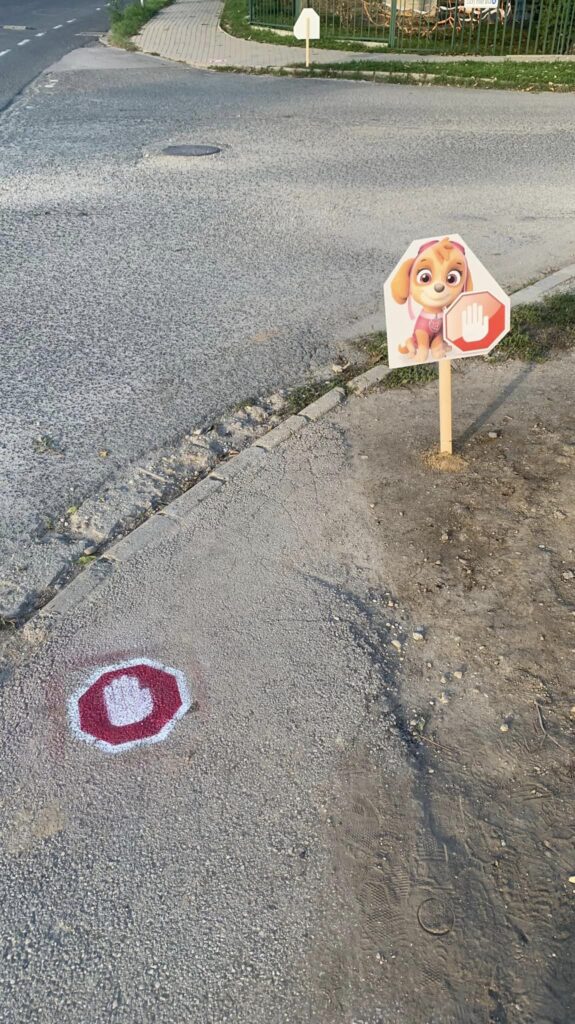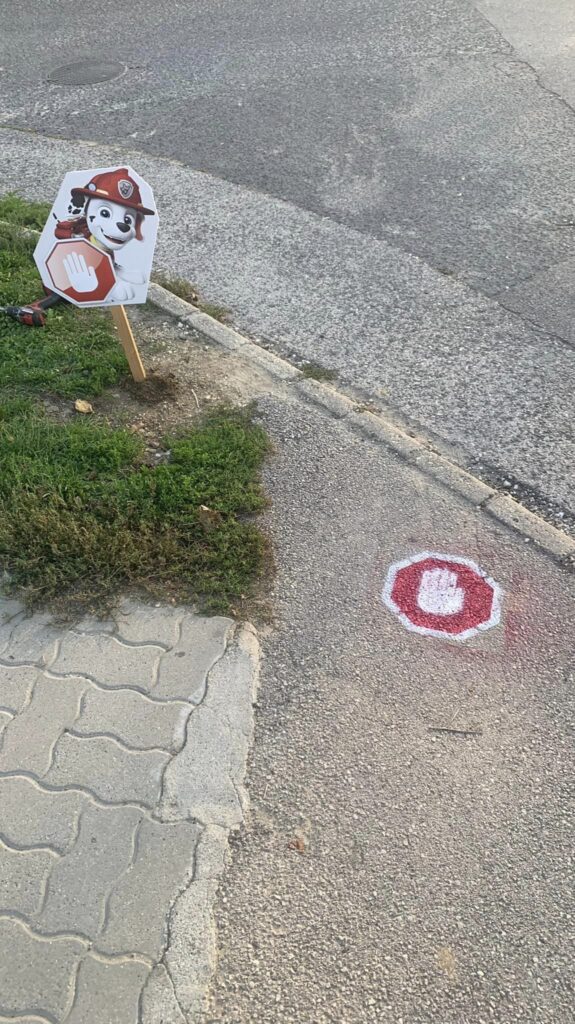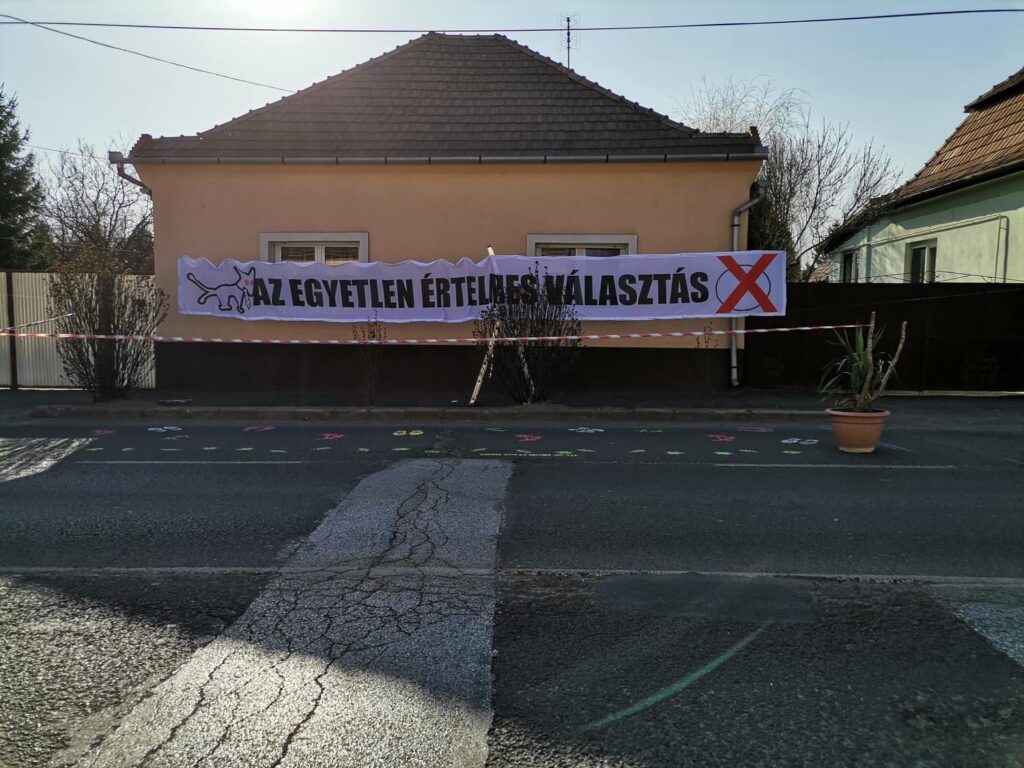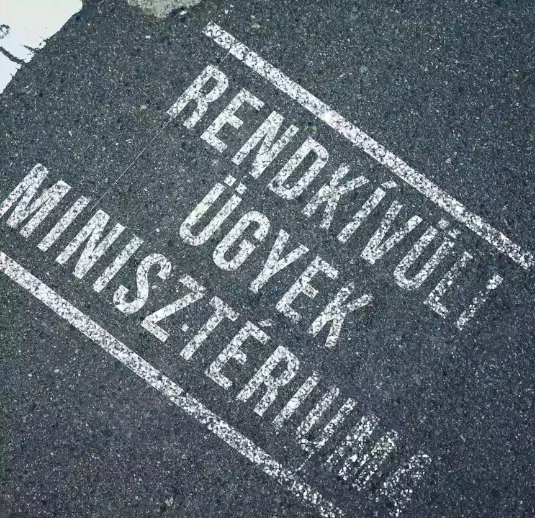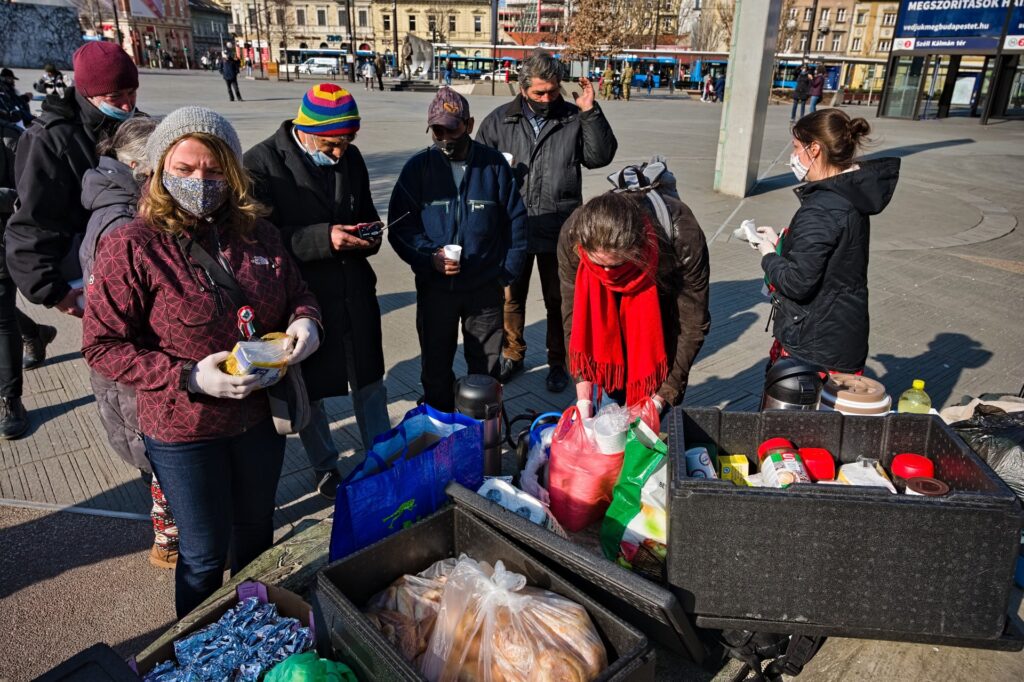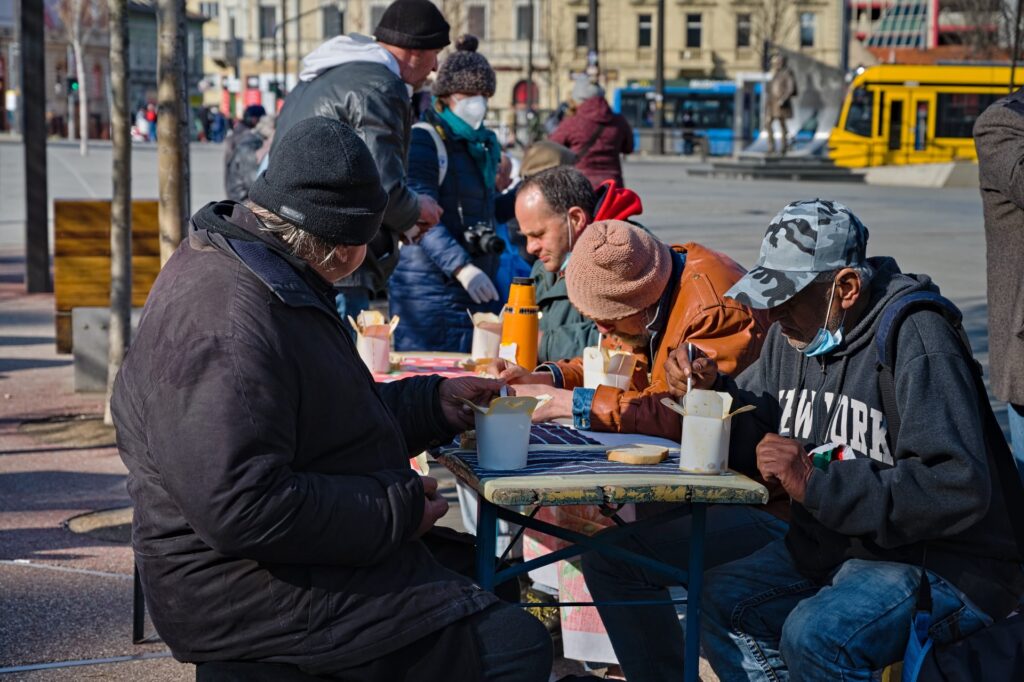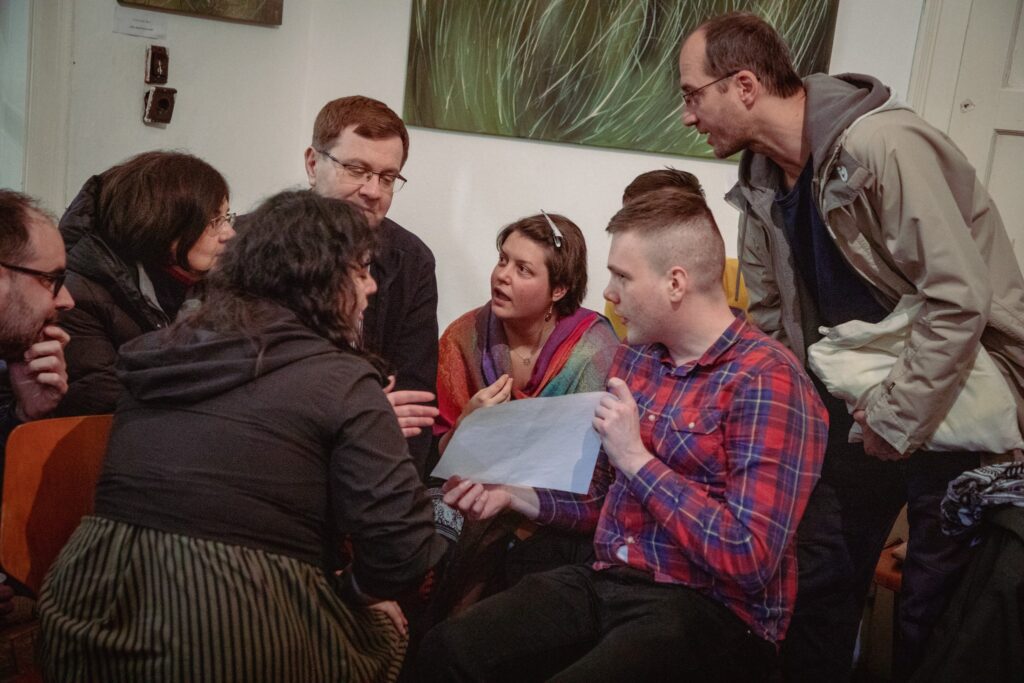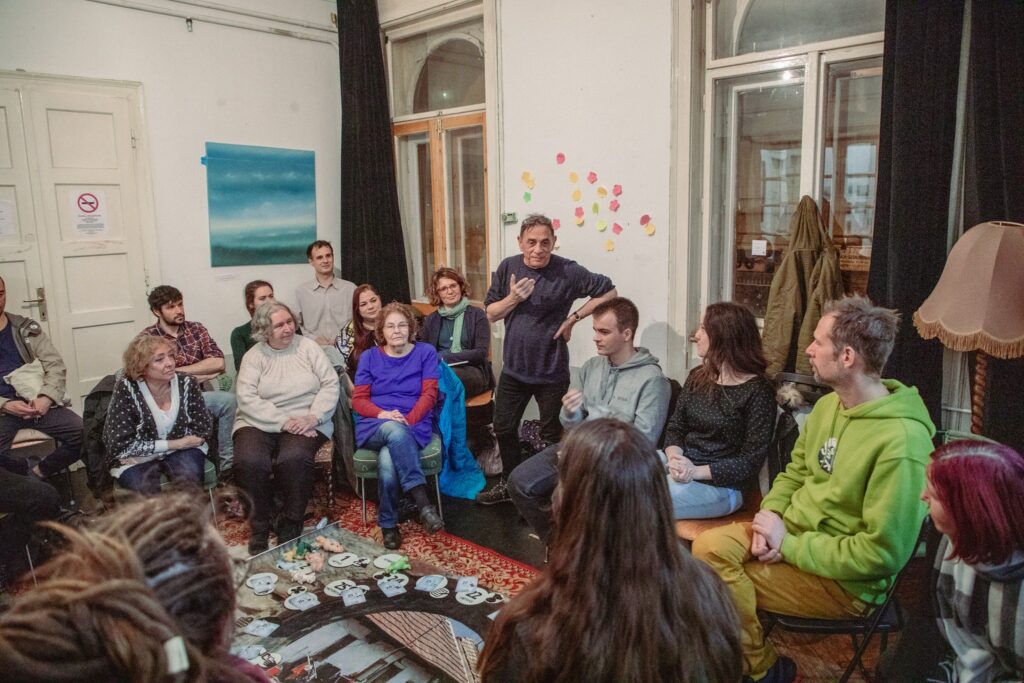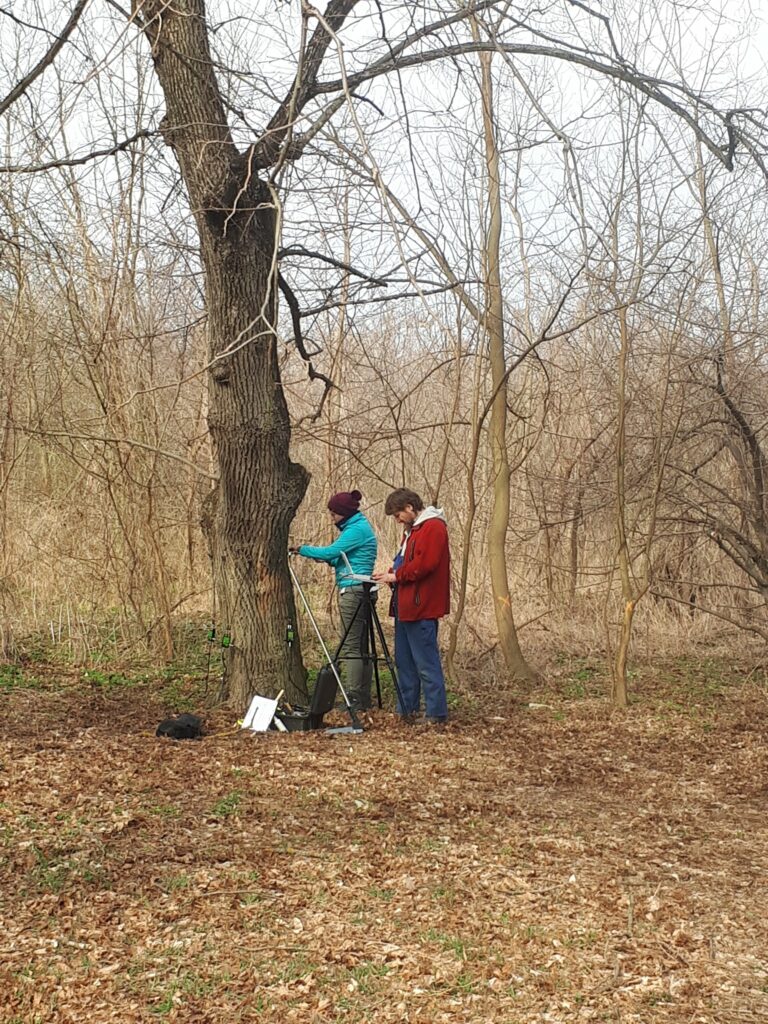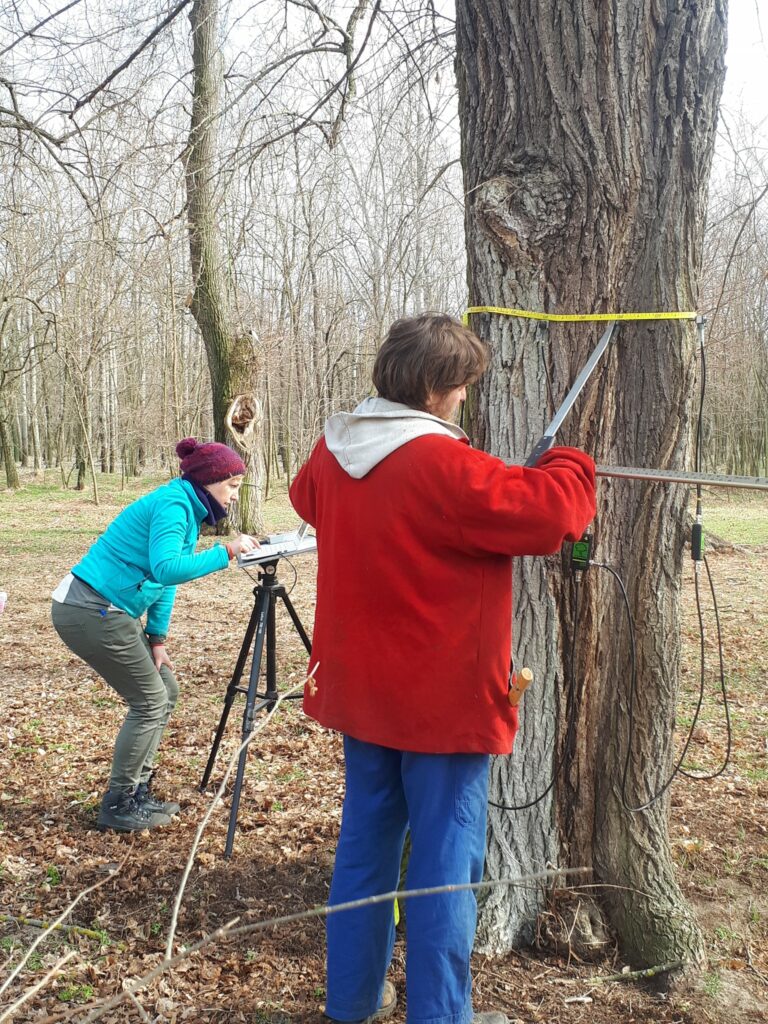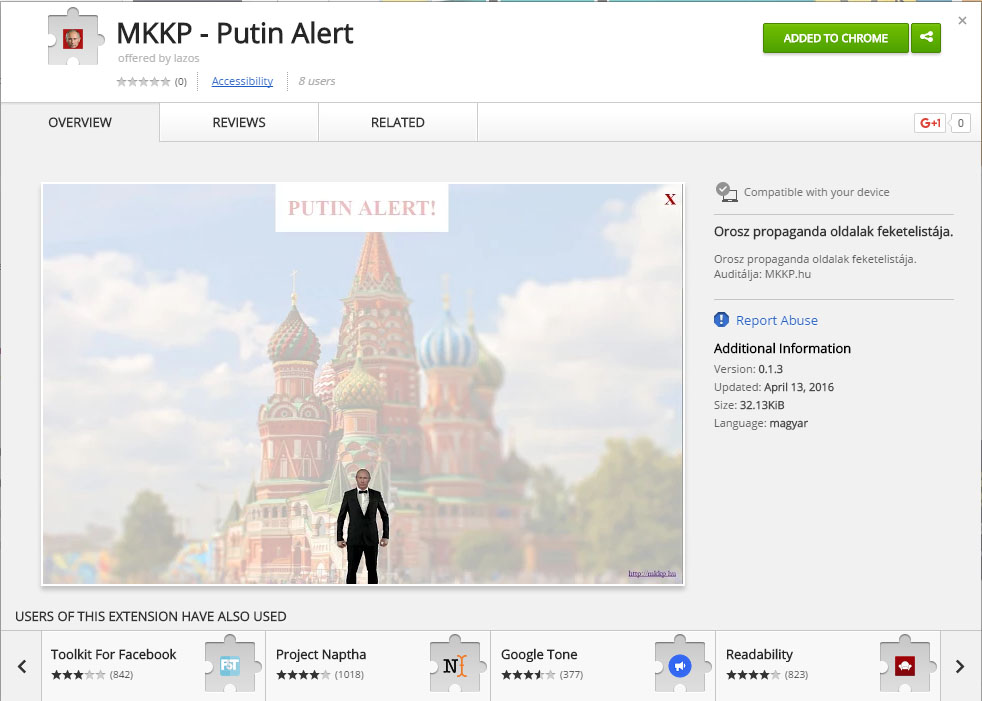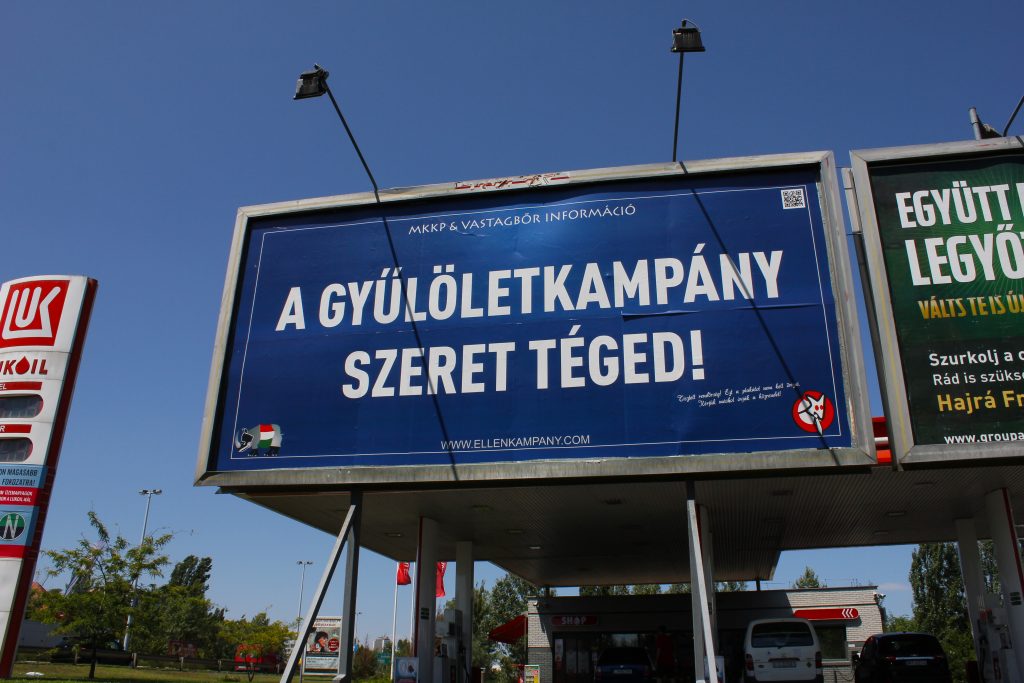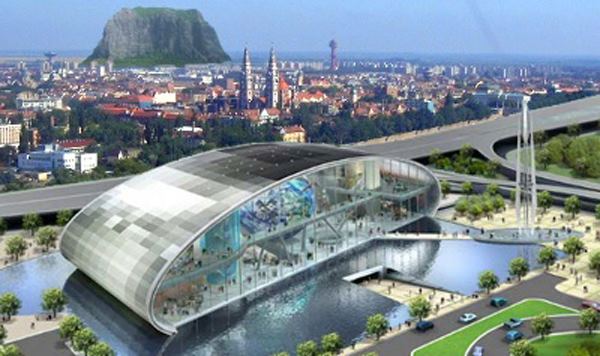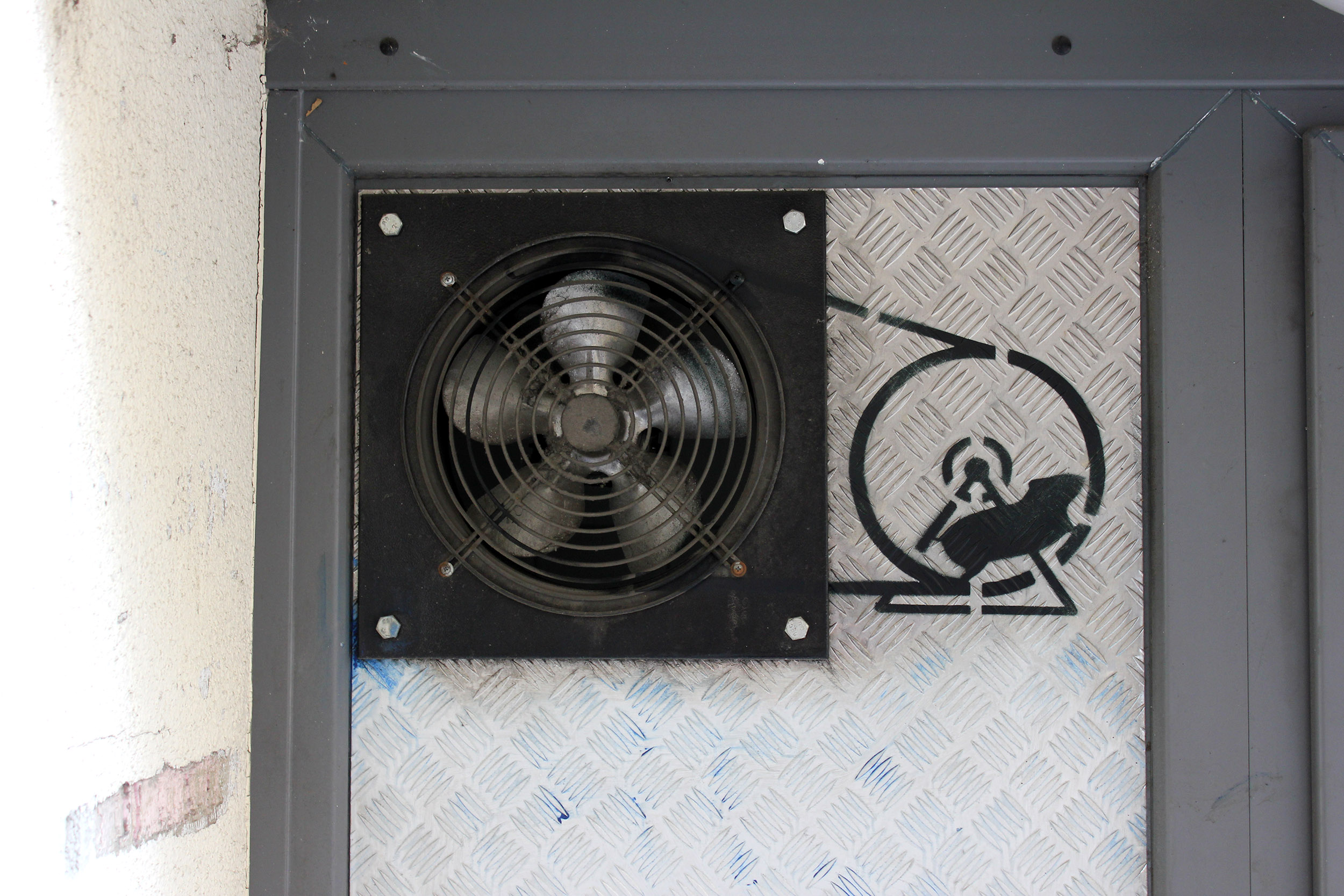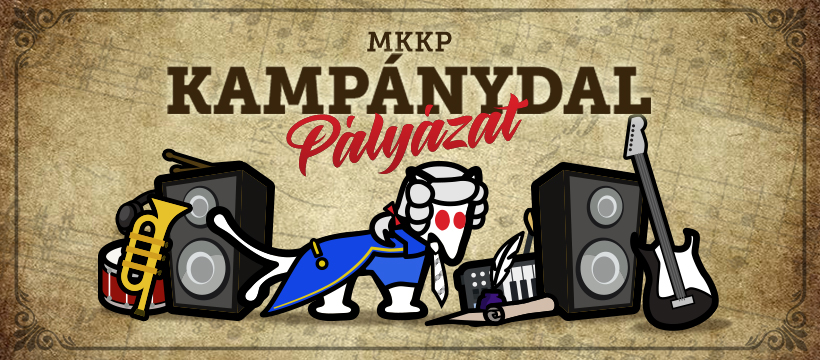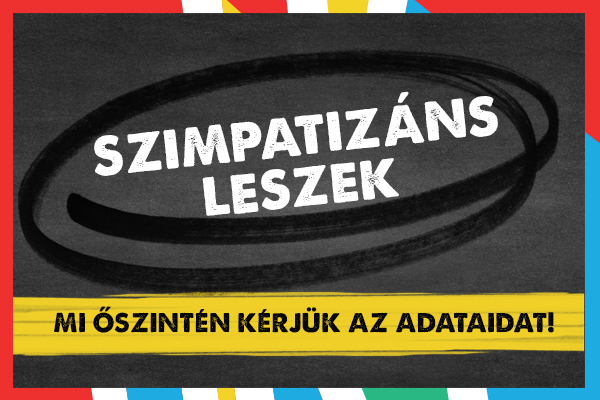The Dog Party’s most important policy is to look after the environment and the community in which we are living in. Although it started around 2006 as a one-man show of Gergő Kovács, a small group of dedicated and like-minded people gathered around him to brainstorm on the project’s possible future. This process has now evolved into a nationwide organization.
We prioritize community-building since we’ve officially became a „political” party. It’s impossible to tell how many events, clubs, and city tours we have organized so far, but they are in the order of thousands for sure.
Our motto is: Even if you can’t grab power, you can still hold a brush!
Therefore, we do NOT need political power to act – we act first, and if we see any point at all, then we embark on seeking political power!
In preparation for the elections, we have compiled an overview for you with links, references, videos, and a bit of irony. In this, we try to point out why we believe we can hold our ground in local government and why we think that even a single Dog Party councillor can make a significant impact on local affairs if they are given a voice and authority.
BEWARE!! THE FOLLOWING SENTENCES ARE LONGER THAN TWO WORDS AND MAY EVEN CONTAIN MEANINGFUL PARAGRAPHS!
| URBAN DEVELOPMENT METHOD | USED DOG PARTY TOOL |
|---|---|
| 0. Public Maintenance | Urban Renewal, Green Dog, RÜM |
| 1. Public Art | Street Art, RÜM |
| 2. Tactical Urbanism | Urban Renewal, RÜM, RÓSÁNÉ |
| 3. Development of Green Areas | Guerilla Gardening, Green Dog |
| 4. Temporary Utilisation (Placemaking) | Urban Renewal, RÜM, RÓSÁNÉ, Konnektor House |
| 5. Public Safety | Urban Renewal, RÜM, Drug policy |
| 6. Smart City Initiative | RÜM, Pisi App |
| 7. Enforcement of Fundamental Rights | Social |
| 8. Social Consultation | People’s Community College, TTP, District-Thinking-Up |
| 9. Building Permits, Legal Protection & Conservation | Our work in the local councils |
- What is this? Urban development with small and micro-scale interventions, voluntary work, mostly funded by taxpayers, occasionally through public donations.
- What is it all about?
- Empowering citizens: fostering critical thinking, agility, creativity, self-esteem, civic awareness.
- We don’t expect the government or the local authority to do it for us, without us.
- Active engagement with public spaces: the city is the arena of democracy, and no one should be excluded from its use and shaping (as long as they don’t cause public scandal).
- This is not a party program! These are methods which facilitate the implementation of programs.
- This is not a promise! We still don’t write conditional or future tense sentences; instead, we present organized things that we have already accomplished.
- Whatever we do, it must fit at least two of these three criteria: it should be useful/funny/delightful.
- We have 2 representatives, one deputy mayor, in addition to our coordinators, organizers, and passivists. The things listed below can come from all four levels.
Let’s look at the areas in which we have already taken real action in what we would designate as a strategy even if we were in possession of public authority!
0. Preservation Tasks
Dog Party Tools: Urban Renewal / Green Dog / RÜM
Objective: draw attention to the fact that the state/local government is not properly performing its duties.
Examples
- Public cleanliness: garbage clean-up (see below), garbage picking and cigarette butt cleaning actions (organized by the MKKP Hiking Group, combined with hiking, or independently).
- In Alsózsolca in 2021, an illegal municipal waste dump was built on private land, which is also part of Natura 2000. Residents approached us for help because the waste used for the investment was transported here from the main road next to the houses and the Sajó river by the local government’s public workers. We brought attention to the problem with on-site video (only available in Hungarian at the moment).
- One of our most successful projects financed from state support is the purchase of a pothole-filling machine. We acquired it in 2018 for one of our applicants, PotholeZoli, and since then, we have managed to fix countless road defects nationwide. Even in Felcsút, where the local government urged us to restore the pothole to its original state, they eventually gave up on this idea.
1. Public Art
Dog Party Tools: Street Art / RÜM
What is this?
It primarily has an aesthetic role (making everything more delightful and looking new). It may not necessarily add utilitarian value to the city… HOWEVER! It can raise awareness, and thus, could have real results. And, of course, it can also make people feel better (because the art is colourful, funny, etc.). The best ones may even shape the identity of their community.
These actions not only demonstrate the importance of creativity but also show that even with a small budget and attention to detail, it’s easy to make a city district nicer. The „pre-MKKP” sprung from this with Gergő Kovács’s guerilla posters in Szeged.
Examples
- Throughout our cities we have renovated numerous deteriorated and rotting ventilation shafts, with creative association; perhaps this is still the party’s most significant characteristic.
- The railway station in the city of Miskolc is crucial for regional transportation. Those arriving here are greeted by an abandoned, dimly lit underpass that had long been out of service. Our team there wanted to spice it up a bit while preserving the original feeling of the place. Pennywise, the clown from the movie „It” came to the rescue with his trademark red balloon.
- In Kecskemét, we took ownership of a few big concrete bollards at several locations and filled them with content.
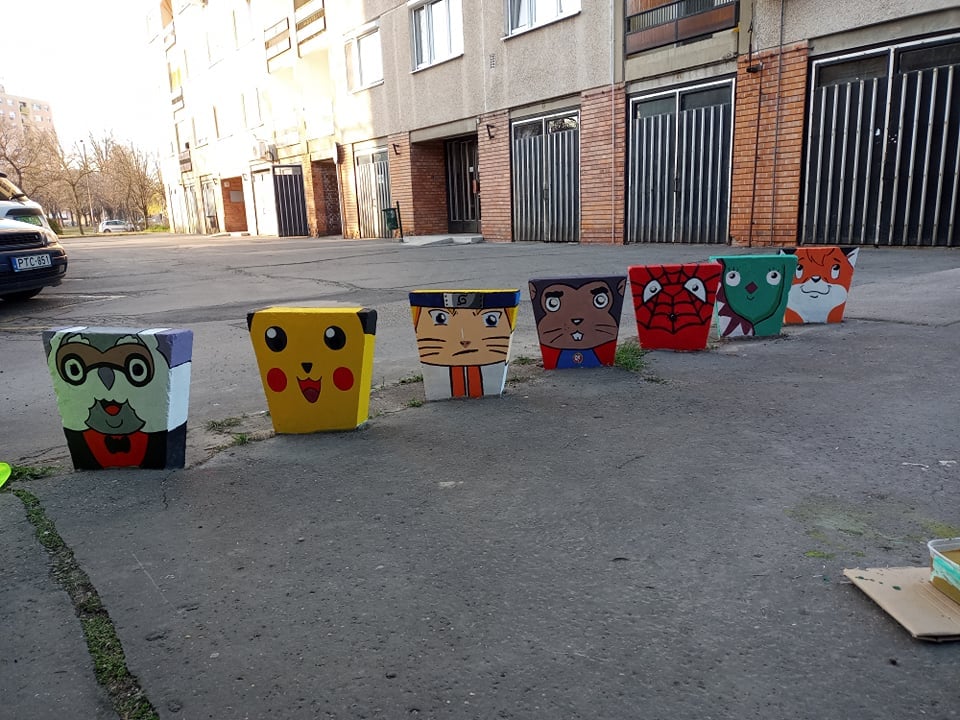
- Our declared goal is to turn Orosháza into a street art powerhouse. We took the initial steps in January 2021 when we created an aquarium, but due to our carelessness, we accidentally pressed a big red button, and the fish immediately fell into a flux coma.
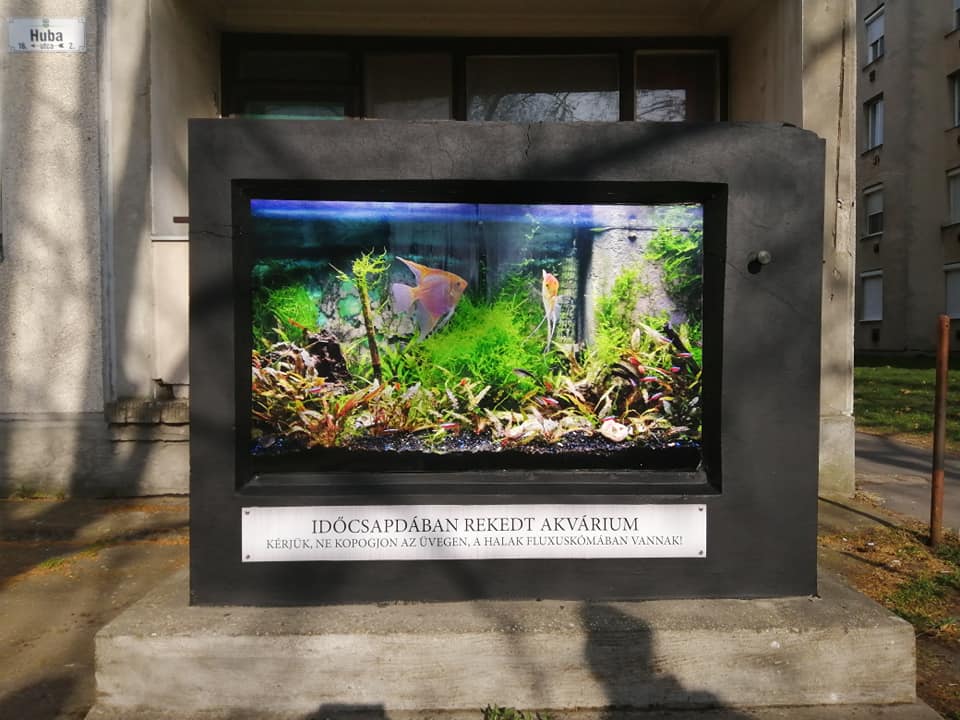
- Our fundamental principle is a critical approach to exaggerated or unrealistic development plans. We prefer to be realists, so we often mock these grandiose promises. Examples include the Szeged Space Station and the Intermodal Hub of Eger, both inaugurated by us. We also promised a new international airport at Rákosliget.
- At the initiative of our party’s co-Chair and deputy mayor of Budapest’s IX. district, Zsuzsanna Suzi Döme, Ferencváros announced a Public Art competition. Within this framework, site-specific public sculptures are exhibited in the district’s public spaces. Submitted art pieces in „unrestricted genre, that address questions related to public spaces and their problems, affecting the community or society as a whole” were evaluated by an independent jury. Among the previous winners was the controversial BLM statue, and this year, the horseless equestrian statue, reinterpreted uniquely with a dose of marshmallow.
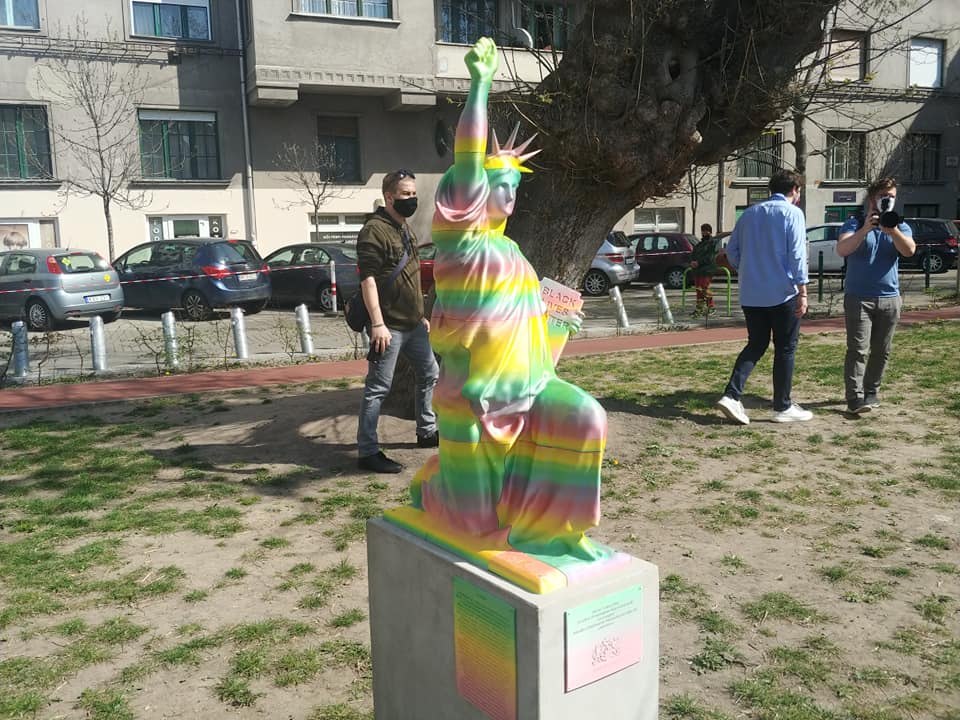
- Also at Suzi’s initiative, a competition was announced in Ferencváros for the creative use of giant billboards. Thus, instead of boring run-of-the-mill ads, commuters can see creative art pieces at several locations.
2. Tactical Urbanism
Dog Party Tools: Street Art, Urban Renewal, RÜM, RÓSÁNÉ
What is this? What does it include?
Aiding the implementation of long-term urban development strategies through clever (tactical) and creative steps. The key difference from street art is that tactical urbanism always adds practical value to the city (which can be as small as being able to sit on a bench once again or dispose of a cigarette butt).
Motivation: Citizen frustration (authorities not doing their job). Expresses dissatisfaction from the civilian side and relieves frustration from the government side (municipal workers also do this when they rebel against the rigid bureaucratic system).
What is it suitable for?
- Changing often rigid, overly bureaucratized urban development processes
- Provides the opportunity for testing and experimentation before the final intervention (piloting),
- Can show people what the final intervention will look like (popularization)
- Allows for corrections based on collected feedback before making mistakes
- Advantages include cost-effectiveness and flexibility (adaptability).
Subtypes
- It’s goal can be twofold: drawing attention / doing what authorities are incapable of .
- It can also be action-oriented, e.g., mobile zebra crossing protests, park(ing) day.
- There is both unauthorized (guerilla) and sanctioned (official) forms.
- It can be done by civilians, entrepreneurs, politicians, or professionals.
Examples
- Bench renovations
- Placement of ballot box ashtrays and bird feeders
- The majority of our bus stop renovations
- The so-called „Mészáros-type” bus stop we built
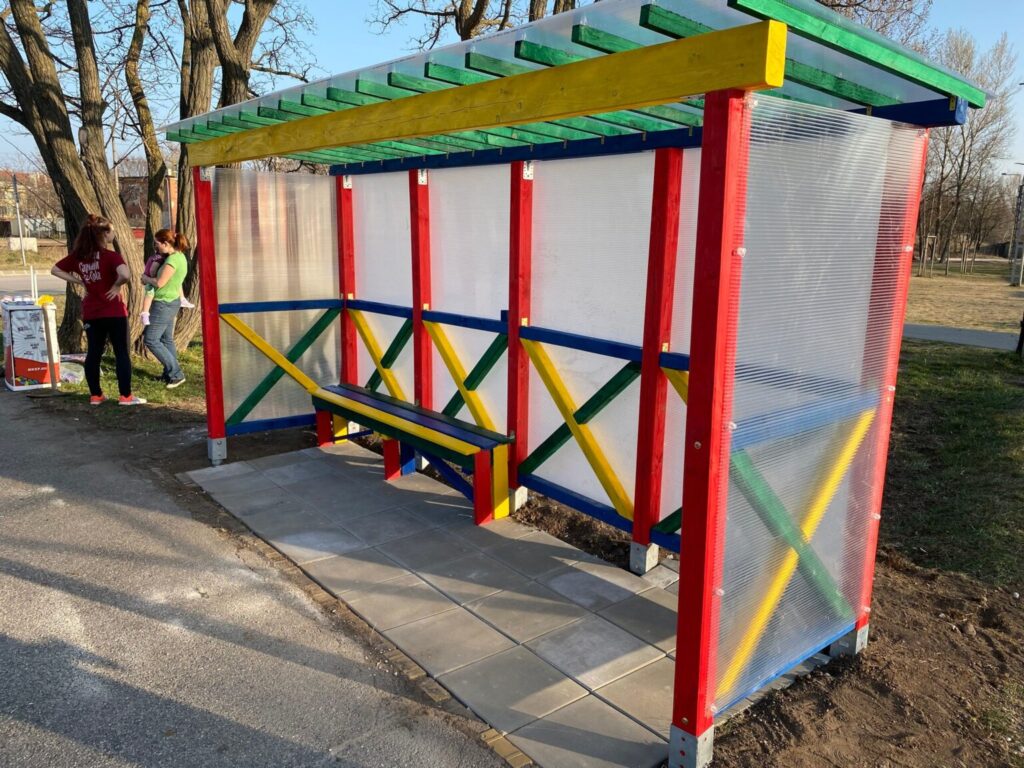
- We trained parking attendants in Ferencváros for stencilling so that they could spray-paint residential parking signs themselves
- Community children barbecue in Ferencváros: after our attention-grabbing action, the (then Fidesz-led) municipality covered the disputed slide with a tarp.
- We supported the referendum initiative behind the VII. district’s Szabad Bisztró (Free Bistro), which aimed to allow restaurants in Erszébetváros to establish terraces in parking spaces, similar to other districts. Although there were not enough signatures in the end, we played a significant role in coordinating the campaign, organizing several actions during the collection period.
- Trash renewal for removal: in Zugló, there is a lot of garbage along the tracks, so we came up with the idea that if the municipality doesn’t remove it, let’s renovate it to at least make it look good. Miraculously, after announcing the action, they unexpectedly removed it.
3. Development of Green Spaces
Dog Party Tools: Guerilla Gardening, Green Dog, RÜM
In recent years, there has been a relatively significant trend in tree planting, even at local governmental level. There are also promising signs at the level of community gardens, with more and more local councils investing in green initiatives. We want to set an example in this area as well.
Examples
- Community herb garden on Németvölgyi Street in the XII. District
- Gravel tree on Margit Boulevard: the municipality accidentally planted gravel instead of a tree in one of the Mechwart Square tree locations. And as it usually happens in such cases, a gravel tree sprouted from it. A week later, the miracle happened, and the expected tree was planted there.
- In collaboration with the Sétáló Budapest (Walking Budapest) activists and the local government of Újbuda, we planted two almond trees on the green area at the corner of Daróczi Street and Bocskai Street in the XI. district. The trees have since been officially recorded in the tree registry.
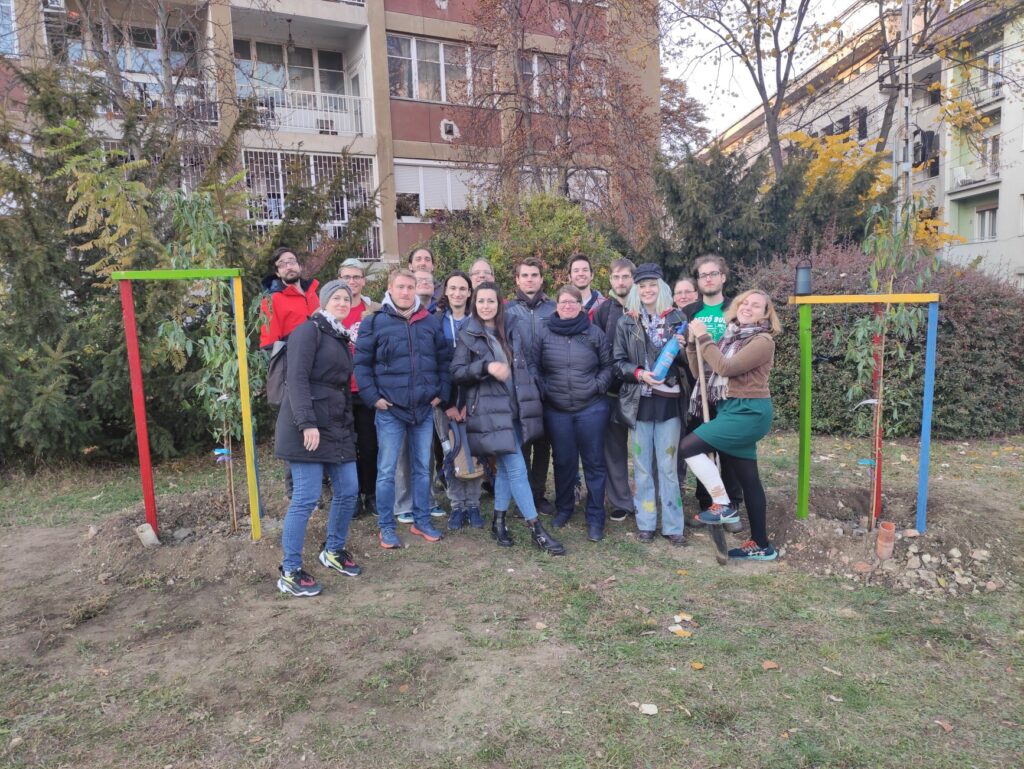
- Green-roofed bus stops
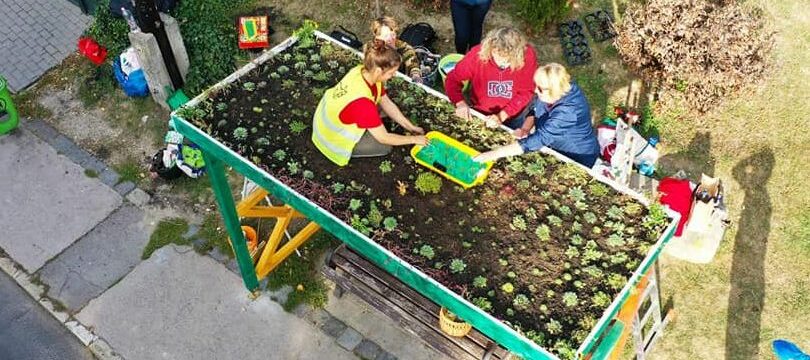
- Community tomatoes in Ajka
- Since the Újpest municipality has rejected our request multiple times to protect green spaces with bollards from cars parking there, we took matters into our own hands and planted so-called bio-bollards in several locations. These bio-bollards provide cheaper, greener, and more friendly solutions compared to traditional concrete barriers.
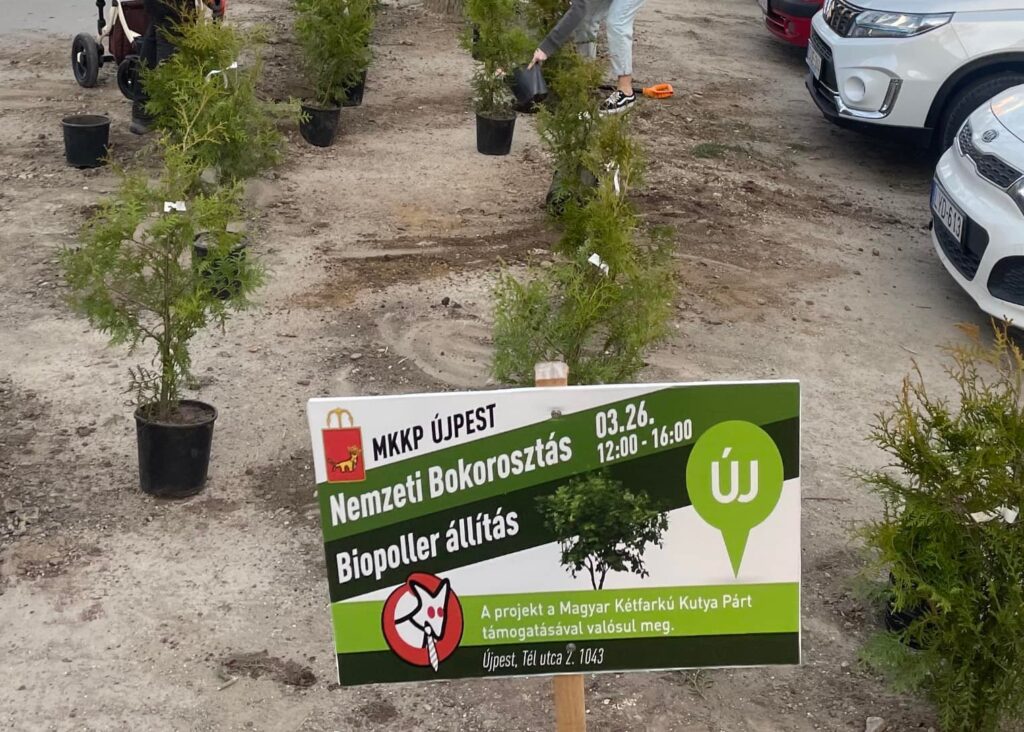
4. Temporary utilisation, placemaking
Dog Party Tools: Urban Renewal, RÜM, RÓSÁNÉ, Konnektor Incubator House in Ferencváros
What is this? What does it include?
- Creating space from empty areas, aiming to activate the use of the area
- Organizing events, performances, allowing experimentation with usage
- Types of temporary utilization: transitional / experimental
- The fate of the place may become permanent or serve a definitive function
Examples
- The Konnektor Art Incubator House in Ferencváros was initiated by our deputy mayor, Zsuzsanna Döme Suzi. It is a communal space for civil organizations and artists. The Konnektor can provide space for approximately 13 groups (selected through applications) and also hosts external programs. The underlying principle is that a usable space should not be left empty!
- With the help of our Campaign Money Squandering Fund, the 7,700 square meter plot of the Szeszgyár (Alcohol Factory) in the VIII. district was renewed in multiple stages. Before we started working, it was overgrown with weeds and filled with a lot of garbage. Initially, we dug a pond with the help of many volunteers, then built a shade and a public toilet. Afterwards, we tackled the garbage to transform the plot into an attractive community space. Several events, including the Condo-Garden Mushroom Festival, have taken place here since. We also organized a large passivist meeting here to evaluate the election for those who helped us during the campaign. In the future, we aim to increase the number of programs and workshops.
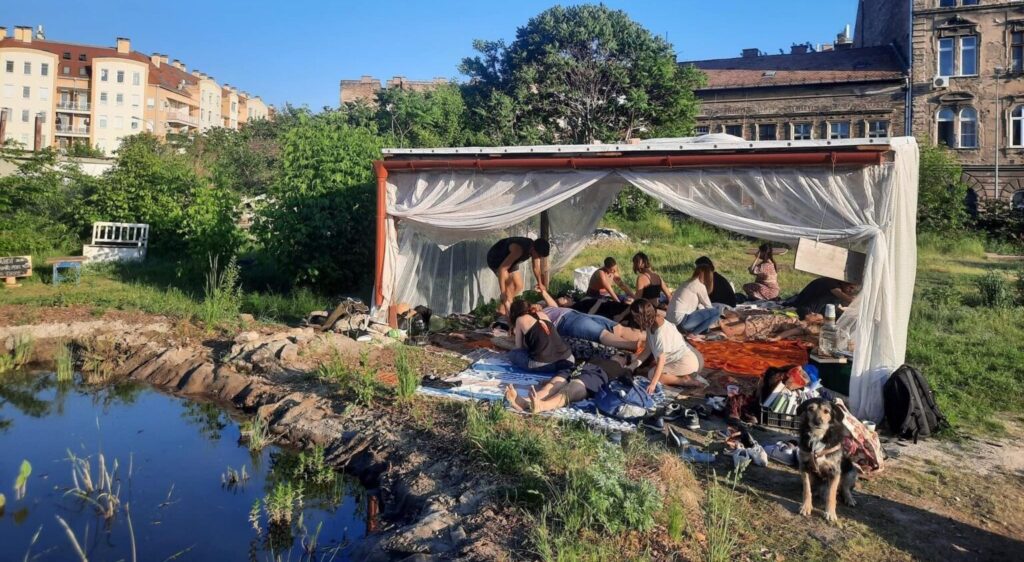
- Also using campaign funds, civilians transformed a former café-ice cream shop into a community space on István Street in the VII. district. The Sandwich Bar has since hosted workshops, concerts, discussions, and similar events.
- The Eleven (Lively) Gyál association participated in our RÓSÁNÉKATÉKA competition. With the support received, they placed information boards, benches, trash bins, and a sandbox in the small forest in Gyál. Unfortunately, after just six months, the municipal city maintenance company unexpectedly collected and removed them.
- With our campaign funds, civilians also revitalized the wild Angel Island harbour. In exchange for the awarded support of over 1 million HUF (approx. 2500 EUR), they renovated the ferry gate and its surroundings: repainted the community pier, added lighting for easier access, placed a welcoming sign for arrivals, installed solar-powered street lighting for the only public well at the harbour, and painted the ferry gate inside and out. Inside, new benches were set up, a public library started on the shelves, and the gallery on the wall began to take shape.
- We named an anonymous park after Bud Spencer in the III. district. Initially done as a guerilla action, it has officially been called that since September 2021. On both occasions, we held a naming ceremony, which included a memorial mass brawl, a beans-with-onion-eating contest, and a concert by the Bud Spencer & Terence Hill Memorial Band.
- The pier with an upgraded lookout has long been a local landmark at the end of Kisfaludy Street in Szántód. However, its condition had recently deteriorated significantly. The Dog Party won 3.3 million HUF (8500 EUR) from the Rózsa Sándor Campaign Money Squandering Fund to renovate it. The remaining amount was collected by the residents of Kisfaludy Street and their friends through private donations. Nearly 100 people participated in some way in the project (some brought spritzers to share with others), but the number of those who contributed significantly to the work reached two dozen.
- The main campaign event for our candidate (the Chicken) in Csepel was the I. Csepel Pacaltoros (tripe-feast) on Darudomb in March of last year. Bands like Sör és Fű (Beer and Weed), Akela, and Chily Team performed, we distributed 300 portions of food, over 1000 boxes of free beer, and even Dinó, famous from the Békemenet (a so called Peace March organised from time to time to support the government), attended. At the end of the summer, we organized a party in Mosonmagyaróvár called Dunaparti Kutyaparty (Danube-side Dog Party). In the afternoon, there was a water pistol battle, badge making, and henna painting, while a vegan Irish fake goulash was cooked in the cauldron. After that, concerts began, featuring performances by Németh Attila, Timur Lenk, and Beerzebub.
- We operated the Help Tent with the help of volunteers for 133 days at Nyugati Square, where most people arrived from Ukraine by train. We collected and distributed hygiene, food, and clothing donations, and also arranged accommodation for the refugees.
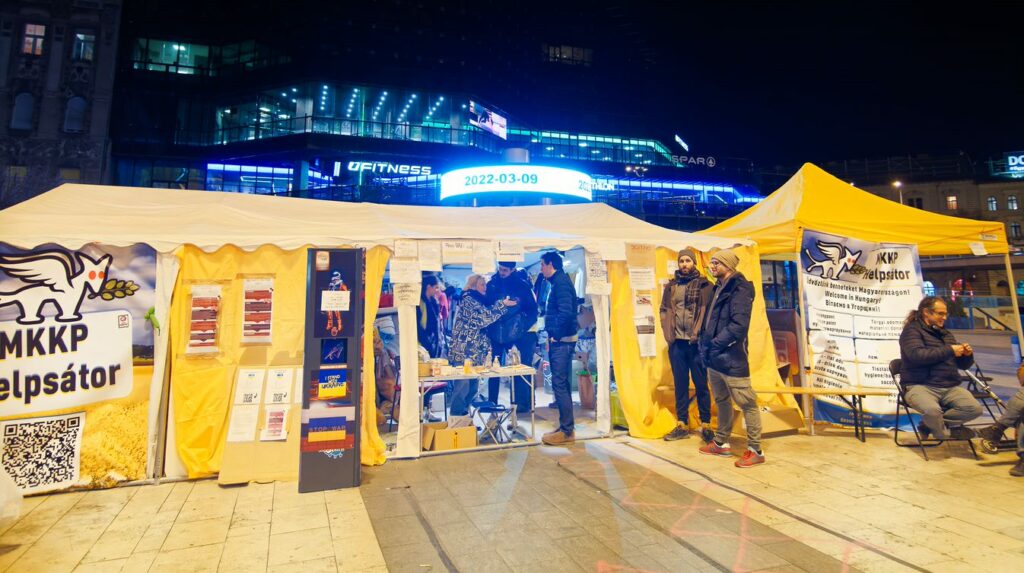
5. Public Safety
Dog Party Tools: Urban Renewal, RÜM, RÓSÁNÉ
The presence of the police and other law enforcement agencies alone does not provide a solution to public safety issues. Despite their limited resources, they may function efficiently and compassionately, but they will not solve public safety problems. If we ourselves do not act for the safety of the streets, if we do not pay attention to others, if we allow others to be in danger, harm others, or ignore others – then the whole thing is messed up.
- Traffic calming
The police and local law enforcement alone cannot solve everything, so it is good to resort to precise and cost-effective tools – as we did in Zala county.
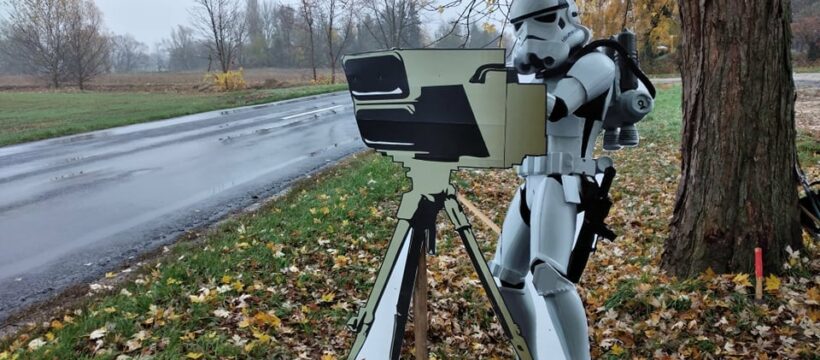
We used a similar tool in Pécel: there is a dangerous curve on Erzsébet Promenade where we tried several actions to slow down drivers – after all, life is beautiful, it would be a big bummer if someone’s life ended right here. For example, we hired a speed-reducing European shorthair (in Latin, europa universalis shorthair cattus morator).
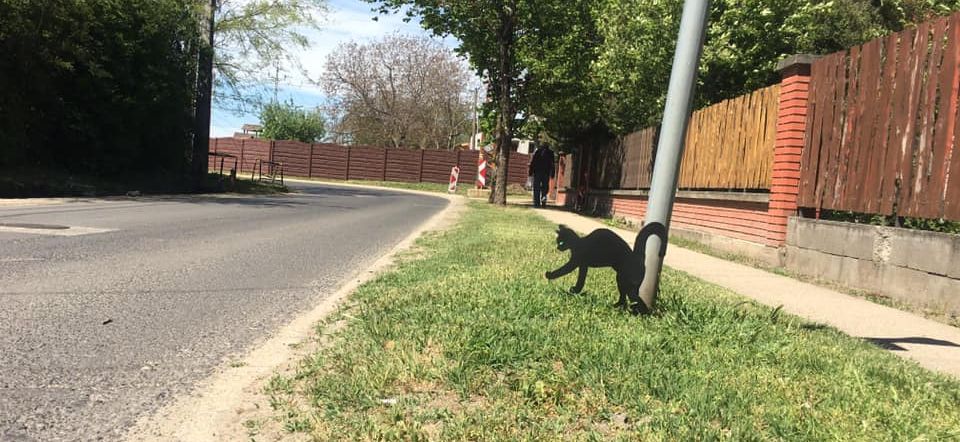
- Shaping the City for Public Safety
Due to bureaucracy, it often takes months (if not years) to install a pedestrian crossing or a curved mirror. Due to bureaucratic processes between organizations, limited authority of offices, and poor connections with the people either at the administrative or political level, near-accidents or even accidents often happen repeatedly. Even when the solution would be a simple zebra crossing or a traffic sign. This is something that needs to be sped up, and interestingly, if we draw attention to specific issues with more visible actions, they are much more likely to be resolved sooner.
Recently in Ajka, we tried to see what would happen if the local government finally created a pedestrian crossing near the local park. The result was astounding: everyone was happy!
In Pécel, we also aimed to contribute to traffic safety by installing a sign and enhancing the reflective highlighting of the slope of the curve.
We have used „Dangerous Kids” signs in numerous places, especially near playgrounds and educational institutions. For example, in Soroksár, where our candidate, Csepeli Csirke (Chicken of Csepel), organized an action in response to a citizen’s report, or in Újpest.
In Budakeszi, we received a report that children from a local kindergarten often run onto the road. Since there is no pedestrian crossing, drivers need to be vigilant for anyone jumping in front of them. That’s why we asked some members of the Paw Patrol to help stop the little ones.
A report came to the Ministry of Extraordinary Affairs (RÜM with Hungarian abbreviation), to the MKKP’s urban renewal page, that on Petőfi Boulevard in Szeged – although the city had tried with small reflective stripes – the posts next to the bike path were not very visible. We solved this problem as well, so now pedestrians just need to be careful not to run into Master Yoda’s lightsaber.
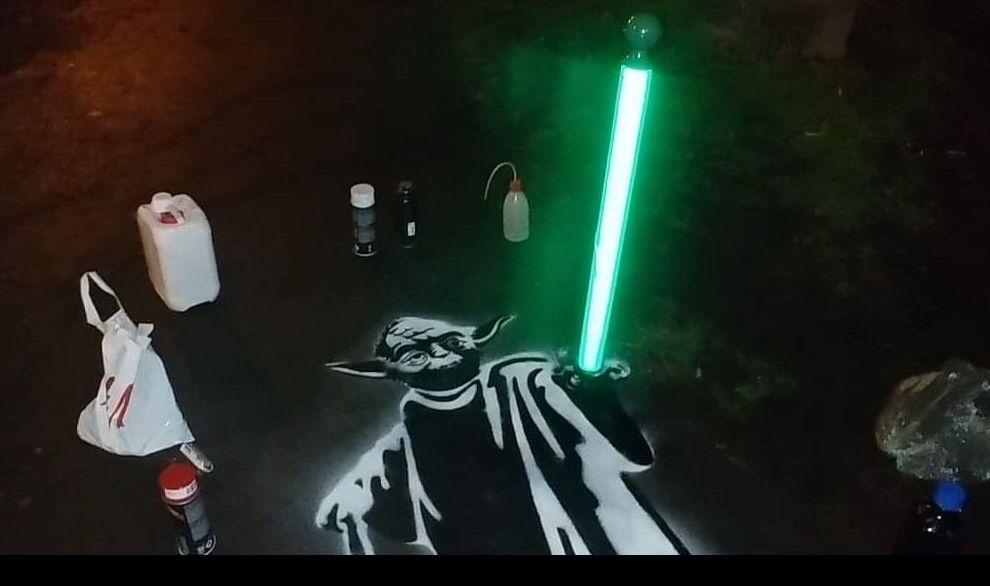
Lanely Picnic in Eger: A decades-old problem was the lack of proper side-walks, cross-walks, the heavy traffic, and frequent speeding along Road 25. We wanted to draw attention to this by closing one lane for an afternoon within the framework of a pleasant picnic. We brought a lot of stencils, beer tables, barrel plants, chalk suitable for asphalt drawing, a giant banner, board games, and of course, a lot of free beer.
- Drug Policy
21st-century drug policy cannot be isolating and prohibitive, as that will likely backfire.
Rather than closing off and banning, education campaigns should be launched regarding the widely spread, very cheap, and extremely dangerous synthetic cannabinoids called „natural herbs” or „herbal incense”.There is virtually no information about the addiction and destruction these substances cause in the body. In contrast, with marijuana, the biggest danger lies in not receiving 1 gram but 0.8 grams, or heaven forbid, 0.7 grams. Legalization would certainly improve this, and even generate tax revenue.
6. Smart City
Dog Party Tools: Ministry of Extraordinary Affairs / ‘PISI’ Free Public Toilet Locator App
In the field of Smart Cities, numerous promises have been made from both sides – and we would like to fulfil this on a professional and practical basis as well!
Is the grass overgrown around the battered electrical cabinet? Has the graffiti-decorated utility pole fallen into a pothole? Is the zebra crossing covered in litter, invisible, and impossible to cross with a wheelchair? Report the problems you see in your town on the map, and we’ll solve them! Or at least make them humorous. Or at least nice looking.
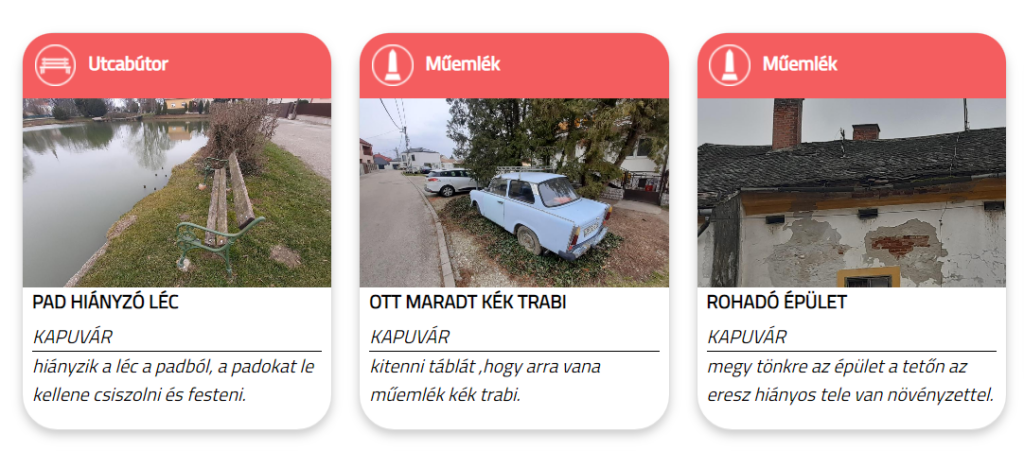
We believe that by 2023, every city should have a similar application; this should be the minimum requirement for a local government in the Smart City area.
- MKKP Pisi App (Pee App)
Our application was completed in 2019, allowing you to always find the nearest public toilets. And not just public toilets, we’ve also gathered information on places such as pubs, cafes, or cactus shops where you can comfortably enter and use their facilities without making a purchase. The app also indicates whether the place is currently open.
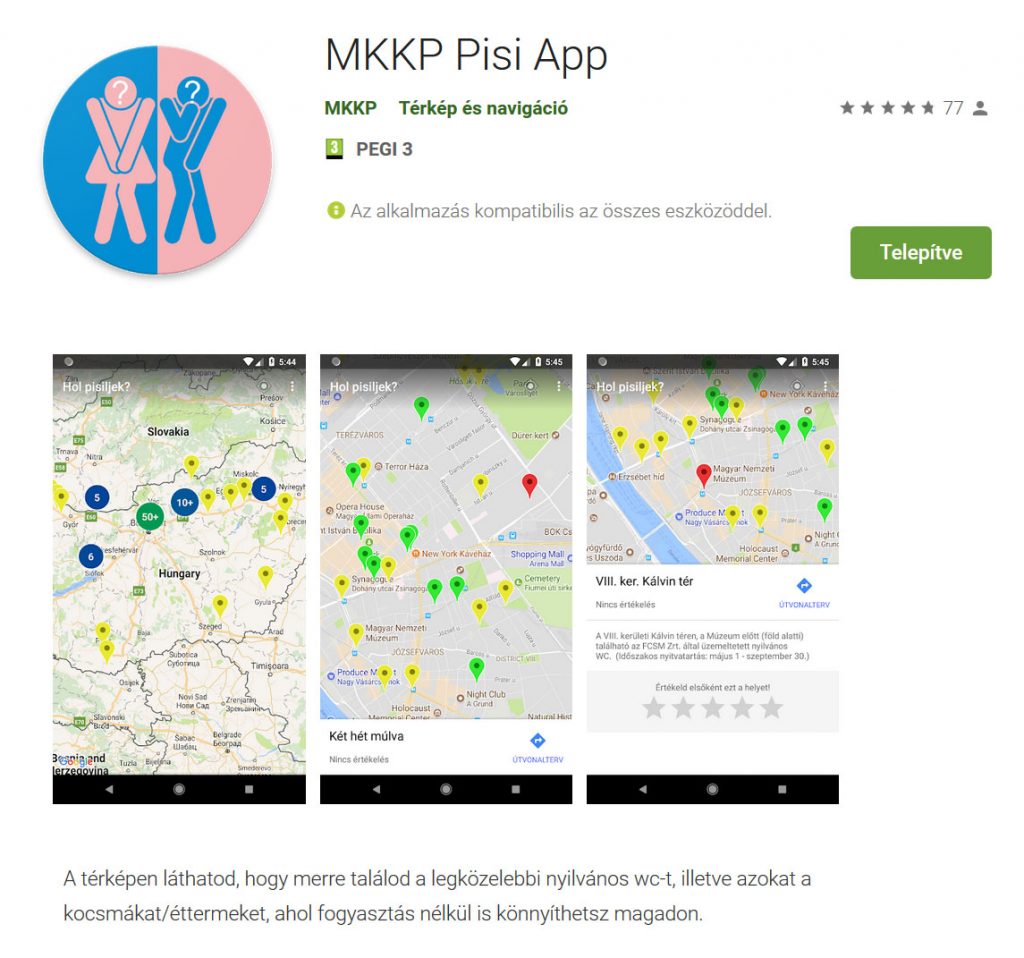
7. Fundamental Rights
Dog Party Tool: Social
What is this? What does it include?
- Subsistence minimum: drinking, eating, peeing, housing, heating
- Especially important for the most vulnerable (homeless, sick, disabled, pregnant women)
- Food and clothing distribution, assistance during Covid
Examples
- Help Tent (see point 4)
- Our representative for the II. district, Veronika Juhász, came across a contract with the JCDecaux advertising company among the materials of last year’s council meetings. One clause stated that the company must ensure that the public transport stops they build do not have surfaces suitable for horizontal stays. It was obvious what they wanted to prevent: homeless people lying on the benches. She initiated the removal of this clause, but since nothing happened in practice, equipped with a screwdriver, she went along the route of bus line 11 and personally removed at least 10 rods from the bus stops. She brought them home and the next day took them to the Recycling Depot and spent the money received for them on homeless people.
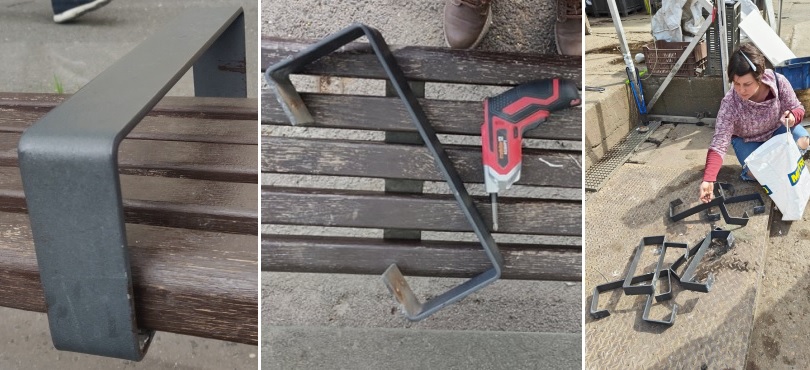
- At the beginning of January, with our passivists, we moved tree stumps out of a cellar in the II. district, delivering them to a social apartment in Kőbánya, so a couple living there could have something to fuel their stove with. We thank the Utcáról Lakásba (From Street to a Home) Association for their cooperation, who have been helping the couple to get their home five years before! This way, we ensured that the donation went to the right place. The action turned into a real community event, with some residents of the house joining in. We got so into it that in the end, we saw woodpiles everywhere. As a bonus, we also received a whole, ready-to-cut dead tree as a gift. We will have to go back for it…
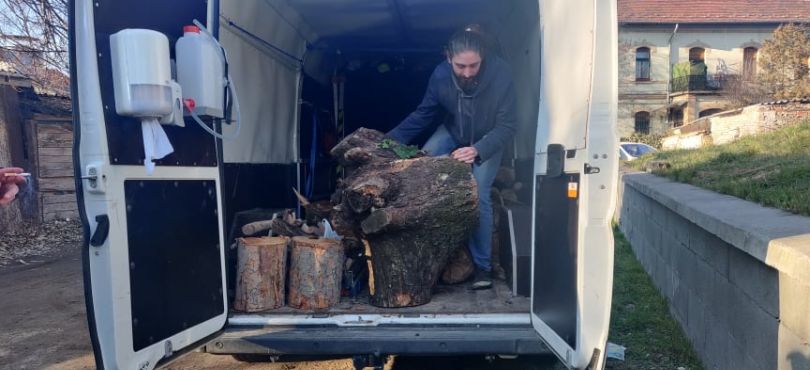
We distributed a total of about 50 thousand rolls of anti-government toilet paper to more than 80 institutions: kindergartens, schools, shelters for the homeless, family support centres, and tutoring centres. Even a police station got some, but that’s a secret. We held free street distributions in six settlements and delivered some to several rural segregated communities. Nationwide, we managed to deliver 347,760 rolls to those in need.
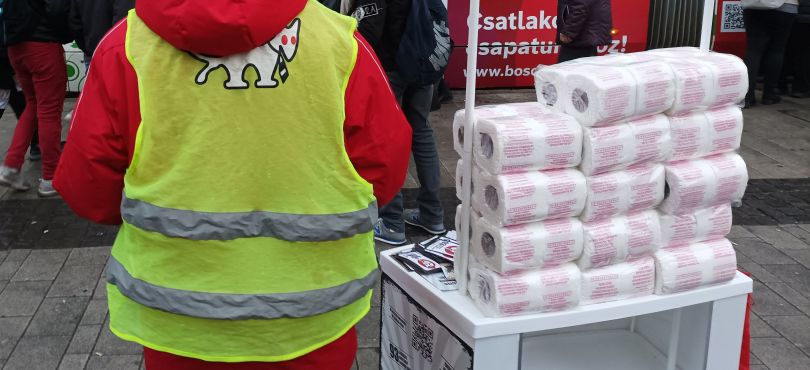
- During the quarantine, from December 30, 2020, to March 15, 2021, we set up on Batthyány and Széll Kálmán Squares twice a week, providing warm meals on Thursdays and tea, coffee, and cakes on Saturdays for those in need. All of this was done illegally, as we got tired of the labyrinth of bureaucracy. Budapest Bike Maffia also indicated that they had a restaurant partner, Pastrami, who would offer 80 servings of warm food per occasion, so we took over coordinating that as well. This action was called ‘Dinners of Tightening Restrictions,’ and we were on the streets almost every other day until mid-January.
- Veronika Juhász also coordinated a collaboration following a sad tragedy: an elderly man’s house in Tulipán Street, the II. district, burned down last Easter. We organised a fundraising, achieving nearly 850,000 HUF of donations. With this, we managed to finance the rental of containers and the materials for roof repairs, allowing work to start as soon as possible. During the summer weekends, there were times when 30 people worked on the house at the same time. There were even those who travelled across the city to bring some cookies to the volunteers.
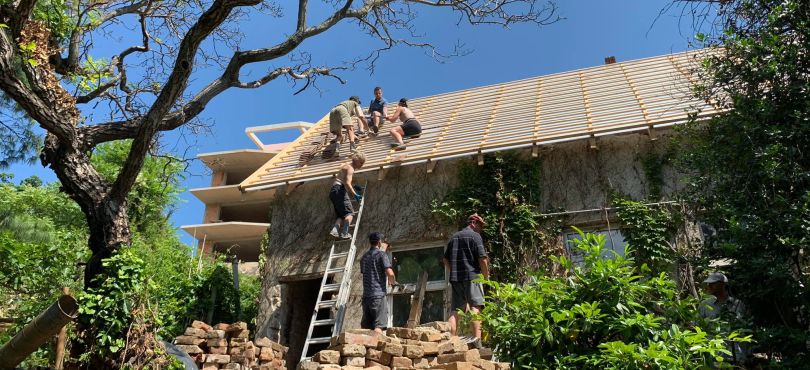
8. Social Consultation
Dog Party Tools: People’s Community College, TTP (Condo Survival Program), District-Thinking-Up
Perhaps the most glaring problem in city management and urban politics in the 21st century is still the lack of social consultation and information.
However, the nihilism that has developed in public policy regarding social consultation and information has reached astonishing levels in recent years:
- They’ll forget anyway by the time the elections come, so why bother with a forum?
2. Why should they have a say, they don’t understand it anyway!
3. Oh God, the old lady is here again, don’t let her into the office!
Creating the practice of social consultation and public information is a bloody laborious task, often leading to disinterest,
but it’s the most fundamental expectation in a 21st-century city administration!
We work in this spirit, and would like to share a few examples from the recent past:
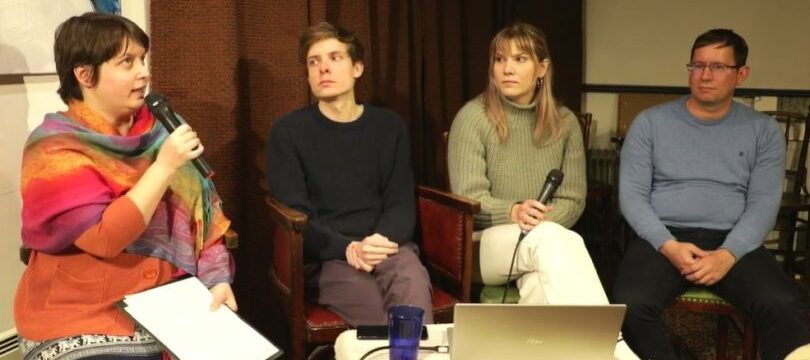
A few years ago, the madness reached Hungary that citizens should have a say in decision-making. Moreover, even in the preparation of decisions, and in sensitive areas such as the budget! Some municipalities have already started implementing participatory budgeting here at home, where a minimal part of the overall budget is spent by the local government in a way that residents can directly propose projects, developments, and theoretically, they can decide on them too.
How successful have these attempts been at home, and what determines success? Is participation the death of representative democracy, or on the contrary: the rebirth of dying democracy, a great opportunity for civil control?
At the People’s Academy lecture on February 23rd at Budapest, three experts discussed the topic, moderated by Veronika Juhász.
At the People’s Academy event in Miskolc, János Orsós, the head of the Dr. Ambedkar School, talked about his life, the founding of the school, the current situation of the Roma people, and their possible future. The conversation was moderated by Gábor Kiss, the MKKP coordinator in Miskolc, and included comments from Tibor Derdák, the director of the Dr. Ambedkar School, and László Jakubinyi, the chairman of the Szimbiózis (Symbiosis) Foundation.
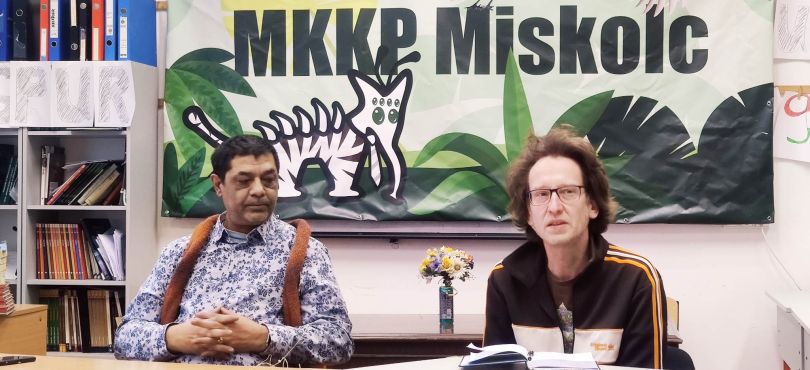
On March 14-15, the Civil Sugárút (Civil Boulevard) event took place at Heroes’ Square, where you could almost taste the civil air: nearly 90 organizations introduced themselves and jointly celebrated the achievements of the civil sector over the past three decades. Since the invitation also targeted political communities, we also attended: the Teleki office (our headquarters) assisted with technical support, and the People’s College reported on the stories and efforts presented here with photo and video broadcasts.
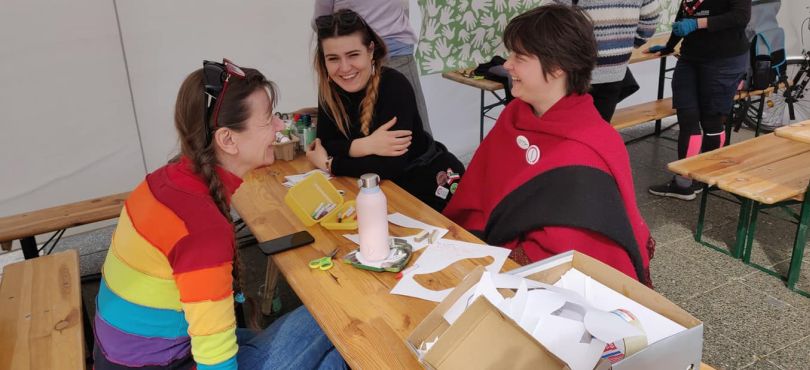
Veronika turned her office hours into a public space, which became “District-Thinking-Up”. In a traditional office hour, people don’t talk to each other, but listen to the leader. She wanted to break with this tradition, so in addition to the usual Q&A sessions, they deal with local issues in the form of team games, workshops, and learn together with residents about the operation of local governments.
The Condo Survival Program (TTP) is also related to Veronika’s work as a councillor. Its slogan is:
„Let’s live well together!” Do you also want to live well? Even in a condo? Come and sit at the table of experts, where in a workshop, we’ll thoroughly analyse your condo-matters. What is it that you should focus on the most? Easier communication, more communal experiences? Smoother administration, more efficient representation? Rethinking communal spaces, a condo-lawyer visiting your home? Or…? Let’s figure it out together!
This was the invitation for the opening event on April 6, and the rest of the program will proceed in a similar spirit.
9. Construction Investigations, Legal Protection, Preservation of Values
Dog Party Tools: Representative/Deputy-Mayoral Work
What does this mean? What does it include?
- During corruption investigations, we often uncover construction cases that do not comply with regulations. We try to bring these to light and, if it makes sense (increasingly less so), take any necessary legal steps.
- Why is it important? Responsible municipal development policy, ethical property management, protection of local cultural and natural values.
Examples
- Since being elected as a representative, our co-chair, Gergely Kovács, has been exposing the troubled affairs of the XII. district, one after another. Examples include the story of the murdered billionaire, the shady dealings around the Öveges program, Archibona Ltd.’s continuous public procurement victories, the demolished house in the Schadl case, forests to be classified as residential zones, and many other cases.
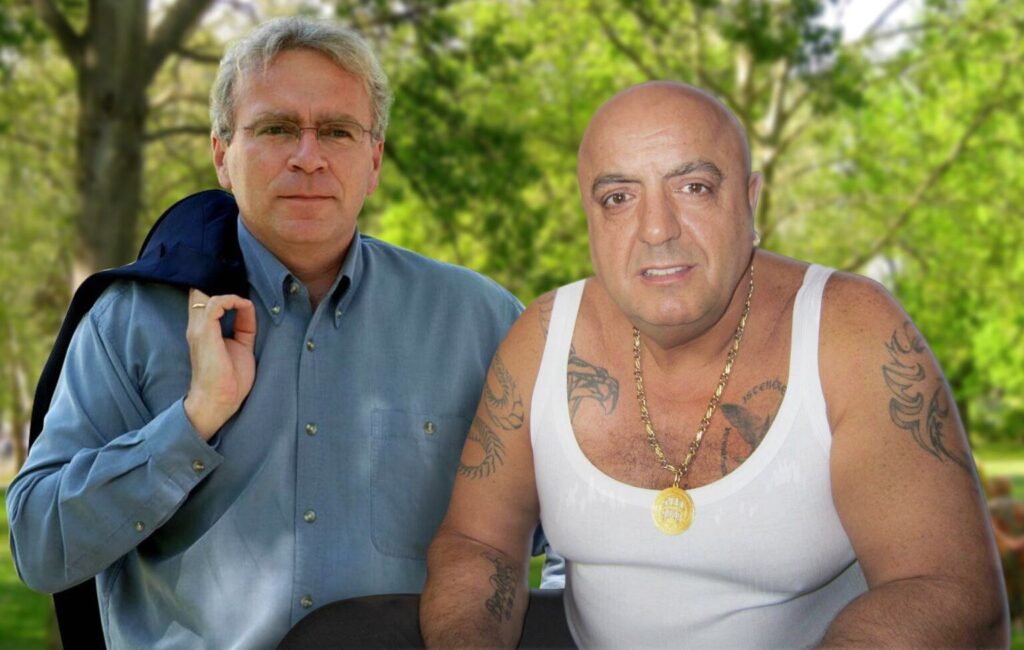
- Similarly, we mapped the protected buildings in the XII. district, categorizing them and providing the date of their declaration as protected.
- Radetzky, don’t crumble! – Veronika Juhász made extensive efforts to prevent the demolition of the Radetzky Barracks at Bem Square in the II. district. Unfortunately, this wasn’t successful at the end, but we kept the topic on the agenda for a long time.
- Also initiated by Veronika, the municipality voted to amend the Tree-Protection regulations. Now when trees are cut down at least one tree has to remain within 100 square metres instead of the previous 200 square metres. In addition, the possibility of transplantation must always be examined with thorough preparation.
- With the support of our Campaign Wasting Fund, the first phase of the condition assessment of the Micsky poplars in Dánszentmiklós (nominated for the 2022 Tree of the Year award) was carried out. As part of the project, dynamic root analysis was also conducted, followed by the comprehensive treatment plan for the eight trees. With the implementation of this plan, the valuable group of trees in Dánszentmiklós can be preserved in the long run.
- In numerous cases, we have assisted civil organizations and individuals supporting urban use in legal protection, such as standing up for the survival of Rozi’s Kitchen (a vegetarian pizza business) in Eger.

